Honi Soit
WEEK NINE, SEMESTER ONE, 2023
Why We Need Utopias The Tiger In The Room Inarticulate
I Am Not Conservative Anymore On Anzac Day
The Life of A Poet Who Never Lived
 Honi Soit Analysis, page 6
Will Thorpe Perspective, page 13
Lachlan Griffiths Culture, page 9
Nicola Brayan Feature, page 12
Sandra Kallarakkal Perspective, page 16
Daniel Holland Culture, page 10
Honi Soit Analysis, page 6
Will Thorpe Perspective, page 13
Lachlan Griffiths Culture, page 9
Nicola Brayan Feature, page 12
Sandra Kallarakkal Perspective, page 16
Daniel Holland Culture, page 10
PRINTED
FIRST
1929
Acknowledgement of Country
Honi Soit publishes on the Gadigal land of the Eora nation. Sovereignty was never ceded. All our knowledge is produced on stolen Indigenous lands. The University of Sydney is principally a colonial institution, predicated on the notion that Western ways of thinking and learning are superior to the First Knowledge of Indigenous peoples.
Reviews
At Honi Soit, we rebuke this claim, and maintain our commitment to platforming and empowering the experiences, perspectives and voices of First Nations students. This basis informs our practice as a paper. As a student newspaper, we have a duty to combat the mechanisms of colonisation.
Editor in Chief
Veronica Lenard
Editors
Misbah Ansari, Katarina Butler, Luke Cass, Bipasha Chakraborty, Ethan Floyd, Luke MešteroviĆ, Eamonn Murphy, Caitlin O’KeeffeWhite, Andy Park
Contributors
Office Bearers SRC Puzzles ‘Comedy’
A First Year Teacher, Lucy Bailey, Simar Batra, Nicola Brayan, Lachlan Buller, Gian Ellis-Gannell, Lachlan Griffiths, Daniel Holland, Sandra Kallarakkal, Ondine Karpinellison, Zeina Khochaiche, Elliot Lawry, Sandy Ou, Vanshika Singhgupta, Will Thorpe
Artists
Sophia Angelini, Christopher Finnegan, Long Huynh, Claire Hwang, Jun Kwoun, Ella Waters-Adams, Ely Yu
Front Cover
Veronica Lenard
Reading the jacaranda leaves
Who the fuck is Ben Moore?
Over the past week, Honi has been in contact with the numerous candidates running for USU Board, attempting (with minimal luck) to organise interview times. However, when it came to finding the candidate Ben Moore, the curse of a boring white name hindered our efforts. Facebook lists two Ben Moores in the broader USyd mutual friendverse. When we tried the Ben Moore sans profile pic, he responded with “Andy who? I have a girlfriend sorry.” Is it then the other Ben Moore, one seems to be happily married?
Could the real Ben Moore please stand up (and send us a message)? Thanks!
they are not to be regarded as the opinions of
newspaper, nor does it endorse any of
Showing their true colours
Gone are the days when celebrities launched their brands on stage — our Lib(dependents) are cringe soft-launching their USU campaigns online. Ben “I-havebeen-backed-before” Hines posted Kobe Bryant on his IG story, decorating his creation with yellow emojis a bit too close to Switch colours… apparently he vibes with leftist appearances now. Turning to Facebook, let’s call a constable… did someone break regs? Looks like Bryson missed Carole’s email: on Saturday, he uploaded a typically StuPol-headshot

advertisements
As student journalists, we recognise our responsibility as a radical student newspaper to oppose the inherent racism and exclusivity of mainstream media outlets. We also uphold the struggle of other Indigenous communities worldwide and acknowledge that our resistance is intertwined.
As an editorial team of both Indigenous and non-Indigenous heritage, we are both victims and beneficiaries of colonisation. We are committed to unlearning our colonial premonitions and working to hold current institutions accountable.
We are galvanised by our commitment to Indigenous justice.
Editorial
Hello reader, I’m not good at hellos or goodbyes. I’d like to think I hit my stride somewhere in the middle. Sometimes I wonder if the in between is the best place to be.
I’ve been thinking a lot about how I ended up here. The events that had to happen in the precise way that they did for everything else to occur. The decisions that put me in just the right position to fall into someone else’s path — or in this case nine other people’s paths. I’m a person who likes to find the connections.
Each person that I have met, decision I have made, experience that I have gone through has shaped me into the person I am today. Sometimes I think about how much of my life has been shaped by that one afternoon in primary school when my mum gave me a copy of Percy Jackson and the Lightning Thief Without an ill-fated goal to get rejected twenty-two times before “successfully” complete), I would not be an Honi editor.
This edition is filled with explorations of the things that shape our reporters’ lives and the ways that they experience the world. Ondine Karpinellison (p. 8) traces her family’s history through USyd’s student publications. Lachlan Griffiths, Daniel Holland and Lucy Bailey (p. 9-11) explore the ways that the stories we tell are shaped, and what their impact can be.
In our feature article, Nicola Brayan (p. 12-13) unpicks what being articulate really means and whether we should embrace being inarticulate. I haven’t stopped thinking about this article since I first got to read it.
Sandra Kallarakkal (p. 16) shares a moving insight into their life and their connection to their family. Simar Batra (p. 16) explores the ways that chronic illness has shaped their experience.
I hope that you find something in this edition that speaks to you. If you don’t, please consider writing for us. We would love to hear you, whether it is an article or a letter.
Honi has truly shaped me. Reading Honi , writing for Honi , editing Honi has changed the way I think and exist. I am so grateful to my fellow editors. They have changed me more than I could ever explain. There is no one else that I’d rather spend my Sundays with.
To the many writers, artists, and readers of Honi over the years, thank you for being part of what shapes me. To the people I have already met, thank you for being part of my experience. To those I am yet to meet, hi I’m Veronica and it’s lovely to meet you.
Veronica Lenard
profile pic with the line “It’s Time”, even though online campaigning only opens next Saturday. Armed with Gough’s slogan, is Bryson also dipping into leftwing messaging? Only time will tell.
Regs reign
Honi for the past week has been locked in a battle with the USU powers that be. Candidates have been sent multiple emails forbidding them from being interviewed by us before the start of campaigning period on 1 May. Despite this stance meaning that Honi’s election
edition will hit stands once the entire campaigning period, and two days of voting, have elapsed, the USU is persisting with this stance. Nothing says democracy and transparency like a big no thanks to the idea that candidates should be scrutinised meaningfully in advance of the close of polls.
Editorial 2
In this edition
4 7 8 10 12 14 19 20 21 22 23 News
ANZAC USyd Culture Feature Perspective
ISSN: 2207-5593. This edition was published on Wednesday 26 April 2023. Disclaimer: Honi Soit is published by the Students’ Representative Council, University of Sydney, Level 1 Wentworth Building, City Road, University of Sydney NSW 2006. The SRC’s operation costs, space and administrative support are financed by the University of Sydney. Honi Soit is printed under the auspices of the SRC’s Directors of Student
(DSP): Gerard Buttigieg, Grace Porter, Jasper Arthur, Simone Maddison, Victor Zhang, Xueying Deng. All expressions are published on the basis that
the SRC unless specifically stated. The Council accepts no responsibility for the accuracy of any of the opinions or information contained within this
the
and insertions.
direct all advertising inquiries to publications.manager@src.usyd.edu.au.
Publications
Please
Dear Editors,
The Gig Guide letters only
Whatever happened to esoteric campus news?
Buildings are renovated, trees cut down, and benches relacquered without even a cursory mention in your paper.
Though the petite happenings of campus are relatively unimportant, they are the sorts of things that must be committed to print most of all. Cause in the end, if Honi doesn’t record their fleeting existence, then no one will!
Marlow Hurst, MECO grad
Dear Mr Hurst,
We appreciate your concerns.
As USyd’s student newspaper, Honi is committed to providing a record of the student experience, however it may be happening and changing.
If you are missing the moments of esoteric campus happenings, perhaps you should visit our Instagram story more often...
If you happen to see any campus happenings or mysteries that we may miss, please feel free to inform us of them.
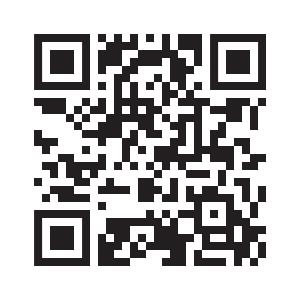
Sincerely,
The Honi Editors
i don’t know how this works i live, i breathe, i shake for honi


Xian Ho, Science/Law V

Letter for Editor hello is this thing on ?
Cory Aitchison, Science
gmail magic decided that this was important
Veronica Lenard is flawless.
Brittanie Hsu <3
important: review of honi
Veronica Lenard is so pretty.
Caitlin Flannery, Arts/Social Work
[Editor’s Note: The Editor in Chief has now discovered what happens when she begs for letters to be submitted to the paper]
Tell us what you think. Send us a letter to editors@honisoit.com
Whorescopes
Aries: Supermarket aisles are your time to calm down after an intense rooting. Walk down with some sex flashbacks, them spanking you at the randomest moments and massaging your back after.
Taurus: Have you updated your sex toys game? Gift yourself with the veinest dildo and play with all the settings, your G-spots will thank you.

Gemini: Play it out!! Your long distance lover wants to listen to audios of you moaning, so go record some sultry audios for them and send it across all of a sudden.
Mutual orgasms in the middle of the day? Hell fucking yeah.
Cancer: Like Brittany said, your tongue will be tied in knots. You will be spoiled on dates and eaten out like you’ve never experienced before.


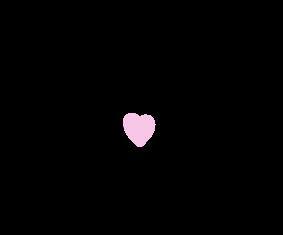


Leo: Hot sake in the courtyard with coy eye contacts and fingers touching slowly will lead to some I-have-neverfelt-this-before makeout session on the bus.
Virgo: Garden of Eden? You should be in the Garden of Rest and eat some burnt popcorn with chamomile tea to give your genitals some rest. Your bedroom’s warmth will remind you what you deserve, the most toecurling orgasms ever.
Dear reader,
This edition includes a news article about the potential changes to the simple extensions system (p. 4) and a letter from the Art History honous cohort opposing the proposed FASS changes (p. 7). These are important issues that have significant impacts on students. As students, we must speak out when we disagree with these kinds of decisions.
If you have been helped by the five day simple extensions system, please share your experiences with the SRC through this survey:
Wednesday 26 April
Delta Heavy // Manning Bar, Camperdown // 10.00pm
Beach Fossils // Oxford Art Factory, Darlinghurst // 7.30pm
Laurel // Metro Theatre, CBD // 7.30pm
Thursday 27 April
Breaking Sound // Oxford Art Factory, Darlinghurst // 7.30pm
Friday 28 April
Blues Arcadia // The Vanguard, Newtown // 6.00pm
The Bear Pack //Enmore Theatre, Newtown // 7.15pm
Velvet Trip // Oxford Art Factory, Darlinghurst // 7.30pm
Sonny Grin // The Lansdowne, Chippendale // 7.30pm
The Terrys // The Great Club, Marrickville // 8.00pm
Graveyard Shift // The Lansdowne, Chippendale // 10.30pm
Last Resort // The Lansdowne, Chippendale // 11.30pm
Saturday 29 April
(or via surveymonkey.com/r/ HPX7W55)
If you would like to speak out against the FASS changes, send an email to the FASS Dean Lisa Adkins at lisa.adkins@sydney. edu.au.
Your voices matter.
Sincerely, The Honi Editors
Pretty Girl // Oxford Art Factory, Darlinghurst // 7.30pm
C.O.F.F.I.N. // The Lansdowne, Chippendale // 7.30pm
Sunday 30 April
Rise. Roar. Revolt. // The Vanguard, Newtown // 5.00pm
Monday 01 May
Phum Viphurit // Metro Theatre, CBD // 7.30pm
Art by Ely Yu
Libra: Get on your knees and be confident of your oral sex potential! You don’t know where your tongue can reach unless you explore the cavities of your mouth.
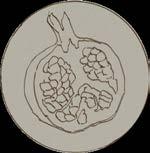

Scorpio: An antipasto platter for breakfast and eggs benedict for dinner? What is discipline when you’re amidst a sex marathon! You won’t get a breather from your hands on each other, so enjoy the little snack breaks in between.

Sagittarius: Stop being so silent when not enjoying yourself. If they’re giving you a weak pound, tell them how you feel because that body is the most expensive temple and must be painted with the hues of passion.
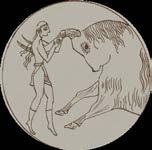

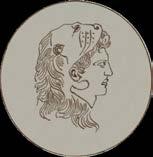
Capricorn: Watch things slipping away, Capricorn. I’m not talking about your dick but the opportunity for a steamy threesome with that person at the bar.
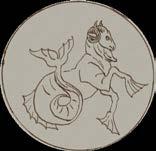
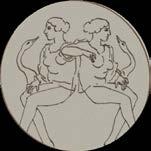
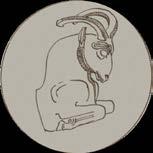

Aquarius: Don your sexiest Little Black Dress and wink back at that hottie. You’re a sexy little motherfucker with your tits up, and I am looking at them.
Pisces: Wattpad fanfiction from 2013 where you’re fantasising Zayn Malik tucking your hair? Read it again and use all those moves in real life (not the cringe texting please).
Letters 3
Smut by Misbah Ansari
Simple Extension changes proposed
Caitlin O’Keeffe-White
The University of Sydney is reviewing the automatic five-day simple extension system, proposing a reduction to three days at the latest University Executive meeting.
Currently, five-day simple extensions are automatically granted to all assessments, with the exception of group work and short release assessments. This applies to all faculties across the University. Prior to this, simple extensions were only permitted to be two days, and were given to students based on unit coordinator discretion.
The change to five days was implemented in Semester Two of last year in an effort to relieve pressure on the special considerations system, which left some students waiting months to hear back on the outcome of their application. Since implementing the automatic five day simple extension, special consideration applications have decreased by up to 60%.
While the changes were intended to be short term, with the added clause stating that it only would apply “until the academic board determines that it is no longer necessary,” the University has not proposed any solutions to address the initial issues present in the special considerations system, despite the change in simple extensions being expected to place increased burden on this system.
Students from the SRC and SUPRA argued in the University Executive meeting that this would unfairly force students back to using the broken special considerations system.
Unlike special considerations, which requires supporting documentation, such as medical certificates, to be approved, students have to fill out a student declaration explaining their circumstances for a simple extension.
SRC President, Lia Perkins, said in a statement “The SRC believes that 5-day simple extensions give students the best opportunity to succeed, with the least amount of stress. The university’s special considerations system is broken and moving to 3-days won’t fix it.
“This is particularly important for students from diverse backgrounds, who the university is ignoring.”
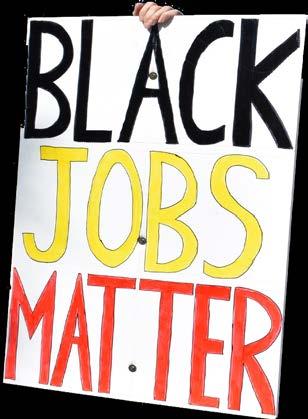
USyd staff call off Week Ten strikes
Luke Cass
Members of the University of Sydney Branch of the National Tertiary Education Union (NTEU) have voted to call off three days of planned strike action in Week Ten. Instead, staff voted to proceed with negotiations towards a final agreement with University management without taking strike action.
Attendees at the Branch members meeting rejected a motion put forward by a majority of the USyd Branch Committee. This motion would have seen Union members go on strike from 1-3 May, as a means of improving University management’s current offer to staff.
That motion sought strike action to meet the Union’s demands for: reduced numbers of staff in Education Focussed Roles (EFRs); a real pay rise; Indigenous employment parity by the end of the proposed agreement; fairer workloads; and a resolution of professional staff issues, including internal advertising.
Members instead resolved to “provisionally endorse the University’s Enterprise Agreement Package to Conclude Bargaining as an acceptable framework to finalise negotiations.”
The successful motion, moved by the minority of the Branch Committee, said that the Union’s final assent to an agreement would be “subject to final drafting and important clarifications concerning,” EFRs and targets for levels of First Nation’s employment.
The Union is demanding Indigenous “Employment Parity” by the end of the proposed enterprise agreement period in 2026 which would see the University adopt a legally enforceable target for Indigenous workers at the University to make up the same proportion as of Indigenous people in the Australian population.
The Union has offered a compromise position in which the University could meet this target if a Joint Consultative Committee of First Nations staff is satisfied that the University has made best efforts, albeit failed, to do so.
The University has agreed to establish this Joint Consultative Committee but not to employment parity nor the Union’s compromise.
There were only 80 First Nations’ staff employed at the University, according to its 2021 Annual Report, out of a workforce of 8145 total staff. This is one of the lowest rates of First Nations employment at any Australian university. Western Sydney University and the University of Technology Sydney have committed to Indigenous Employment parity by 2025 and 2023 respectively.
The University’s plans to employ up to 25% of all non-casual teaching staff in EFRs, with a workload composed of 70% teaching, remain contested by the NTEU.
The Union is proposing EFRs be capped at 20% of the relevant workforce, that teaching make up 60% of their workload, and that these staff accrue a right to transition earlier in their employment.
They are also demanding that staff in these roles are not forced to work beyond what they are required to.
Issues pertaining to internal advertising of professional staff roles remain in dispute.
Ishbel Dunsmore and Yasmine Johnson, USyd Students’ Representative Council, told Honi, “as members of the Education Action group and the student union more broadly, we had a big hand in organising students to go out and support staff on strike, because we believe unequivocally and without question that staff working conditions are student learning conditions.”
Any final agreement between the Union and University still must be approved by NTEU members, unless the University uses legal means of subverting the will of the Union, including a “nonunion ballot”.
Randwick vigil opposes display of Israeli flag
Katarina Butler
Protesters gathered at Randwick Town Hall last week for a vigil before the Randwick Council Meeting in opposition to the council’s decision to fly the Israeli flag to “celebrate 75 years of Israeli independence.”
The vigil, held on 18 April, was attended by USyd’s Autonomous Collective Against Racism and other community groups. Following the vigil, Palestinian rights activists attended the Council meeting to urge the council to reverse its decision.
Two councillors moved an urgency motion demanding that the decision be reversed in solidarity with Palestinian community members. The motion failed, and the flag will fly on Wednesday 26 April.
The SRC Ethnocultural Officer said in a statement: “Palestinians, nonPalestinians, Jews, Muslims, Christians, atheists, students, workers, academics, retirees, politicians, all congregated under the Palestinian flag to show their respectful but firm opposition.
“Palestinian have a right to exist, a right to resist and a right to sovereignty over their ancestral lands. They are being (and for 75 years have been) denied all of these by the state of Israel: so why would a local council in Australia proudly support such a state?
“Well, just as Australia was founded on the lie of ‘terra nullius’, Palestine was deemed a ‘land without a people’ by British occupiers in the 1920s and given away to the Zionist project ‘for the establishment of a Jewish homeland’, paying no regard or respect to the Indigenous people already living there.
“This ideological racism whereby native people are not seen as human beings by colonisers is a disease in so-called Australia and this disease continues to be spread pathologically by both liberal and conservative values. The subjugation of the Indigenous population in a settler-colony is the status quo, and to work against this takes decolonisation of mind, state and society.
“It takes introspection and grappling with the discomfort of benefiting from stolen land and vowing to stand for Indigenous liberation everywhere. It takes commitment to anti-colonial resistance, from Gadigal to Gaza, from Naarm to Nablus, from Boorloo to Bethlehem.”
News 4
USyd ‘strongly supports’ Accord in final submission
Luke Cass
The University of Sydney has entered its final submission to the upcoming Universities Accord, setting out its priorities across seven areas corresponding to what it sees as the “priority issues” facing higher education in Australia.
The University said it “strongly support[s] the concept of an Accord, to facilitate a national discussion and consensus building,” in the introduction to its submission.
The submission emphasised the need for Australia to “lift educational access and attainment,” to meet the growing need for university degrees to attain employment. It said that while HECS loans “[remove] upfront tuition fees upfront tuition fees as a direct barrier to access to higher education,” a lack of support for students while studying posed a barrier to accessing university.
“The burden of covering basic living expenses such as housing, food, transport and utility costs continues to prevent too many students from accessing and succeeding in their tertiary studies,” the University said. It recommended a review of Australia’s current system of student income support, which as it stands fails to prevent large numbers of students, particularly of disadvantaged backgrounds, from living in poverty.
The University urged the Albanese government to “fix the worst elements
of the Job-ready Graduates Package,” in its submission. The Package, which causes wide-ranging and inequitable harms, was criticised in the submission for being “based on flawed assumptions,” and for creating “perverse incentives for providers and the Commonwealth when allocating places.” The University said the government should undertake an “assessment” of the Package’s impact on students, regarding its raising of student course payments and its impact on the funding of university places for First Nations students.
The submission stopped short of demanding a repeal of the package — the view of the National Union of Students and the National Tertiary Education Union. It failed to mention other negative impacts of the Package on students, including changes to the course discontinuation options available to students and time-limit restrictions on degrees.
The submission was critical of the Job-ready Graduates Package’s impact on research capacity, saying its “effective separation of funding for higher education teaching and research … [has] exposed a major structural gap in the way Australian university research is funded.”
The submission noted that universities’, including USyd’s own, reliance on international student revenue, to make up for a lack of funding for research “is a critical issue which needs to be addressed.”
It followed this submission with a recommendation that the government should “strengthen the role of international education,” both for international students coming to Australia and for Australian students studying overseas.
The concluding submissions made by the University recommended the government “improve the way tertiary education policy is made,” by improving the “quality, transparency and likelihood of evidence-based decision making.”
Lia Perkins, President of USyd’s Students’ Representative Council, told Honi “It’s unsurprising that USyd is excited about the Accord, because they have such a large seat at the table and ability to influence the government.
“Unlike USyd, we believe that JobReady needs to be completely repealed and replaced with fully funded, free education.
“It’s been almost 3 years and USyd has the ability to protect students from some of the worst elements of JobReady, by preventing students from failing units and fixing their problem with Special cons and academic integrity wait times. This is what’s in the best interests of students, and it’s clear our interests don’t align with management’s.”
UNSW staff stop work
Luke Cass
Staff at the University of New South Wales (UNSW) took industrial action from Monday to Friday last week.
94% of UNSW’s NTEU Branch members voted for the action after enterprise negotiations between the Union and University management stalled.
UNSW NTEU told Honi, “The union has been negotiating for more than a year, and is seeking a significant reduction in casual work, and equivalent conversion of casual work to ongoing employment. The union seeks to provide a secure work environment for staff and continuity of support for students.
“The union is fighting for stronger job security protections. UNSW had massive staff cuts in 2021 but returned an operating surplus of $223 million. NTEU members report that the impact of this has been felt in increased workloads across the University.
“Members are seeking to strengthen the regulation of academic workloads to ensure a safe working environment.”
Deakin University goes on strike
Katarina Butler
Monash University tries to dodge wage theft repayments
Luke Cass and Andy Park
Monash University has taken the National Tertiary Education Union (NTEU) to the Fair Work Commission in a bid to avoid repaying up to $10 million in allegedly stolen wages owed to casual staff at the University.
Monash applied to retrospectively change the enterprise agreement in place between the University and the NTEU from 2019. If successful, Justice John Snaden has said the union’s wage theft claim could be extinguished, at least in part. The Federal Court has paused the union-backed case while Monash’s was being considered.
The university has hired a top legal team from Clayton Utz and other leading barristers, the same firm which USyd management hires for enterprise
bargaining. In a recent submission, the university said that the language was “ambiguous”. A spokesperson said it applied “to provide certainty to both staff and the university.”
Last November, Monash admitted to $8.6 million of wage theft from 2014, along with further underpayments. This included casuals not being paid the correct rates for teaching and marking, and full-time academics having their workloads manipulated to hundreds of hours of unpaid overtime. It is also alleged that the University instructed professional staff to fudge their electronic rosters to give less than minimum shift hours.
Furthermore, Monash University allegedly misled the Senate Committee on the matter. Monash University’s former Chief Human Resources
Officer, Brigid Connors, told the Senate Economics References Committee in 2020 that “Monash staff are paid in compliance with Monash’s legal obligations.” However, at the time that Monash made this written submission, the university was already conducting an audit into underpayments.
NTEU Monash Branch President Ben Eltham noted that the outcome of this case has “economy-wide implications.
“If employers can respond to underpayment claims by retrospectively varying their Agreements, this could have a chilling effect on underpayment claims brought by employees across the economy,” said Eltham.
The Commission will hear Monash’s application on 18 and 19 May.
The National Tertiary Education Union (NTEU) at Deakin University took strike action on Friday after seven months of unsuccessful enterprise bargaining. Members of the NTEU’s Deakin Branch voted to strike on Monday 17 April after Deakin management’s decision to put forward a non-union ballot just three days earlier.
The NTEU at Deakin is campaigning on many of the same issues as the NTEU at the University of Sydney: academic workloads, casualisation and pay. They want management to maintain the 40:40:20 model of academic workloads and create 150 extra permanent positions for current casual staff by 2024.
NTEU Deakin Branch President Piper Rodd told Honi, “We are taking protected industrial action to raise awareness across the University that what management is doing should be of concern to all workers and students because it undermines the right to have meaningful input into what kind of university we want to be. We ask Deakin workers to vote no to management’s disrespectful and inadequate offer so that we can get back to the bargaining table to negotiate a better deal for all workers.”
News 5
What do we remember on Anzac Day, and what do we forget?
In the last forty or so years, Anzac Day has grown to such an extent that it now sits alongside Invasion Day as Australia’s national day. Australian identity has come to be defined in terms of “the spirit of Anzac” and other equally virile, militaristic, and racially exclusionary terms. This is certainly not inevitable. It is the result of a concerted conservative effort, often with the assent of the Australian Labor Party, to redefine the way we remember Australia’s past and our role in overseas conflict. It is through this reconstruction of our memory, of what we remember and celebrate, that conservatives have attempted to fortify the white masculine identity of the 19th and 20th centuries against threats to that hegemony.
Ghassan Hage argues about Australia in his book White Nation, “the visible and public side of power remains essentially-Anglo white.” Anzac Day is part, and an influential one at that, of the way white Australia has retained its cultural power and position in the national story. It ensures that any other vision of Australia’s history — and in turn its present — remains at the periphery of this Anglocentric core of power.
Beyond this, Anzac Day, as Australia’s primary means of remembering our history of conflict shapes our understanding of war and its consequences using simplistic, and ultimately harmful narratives.
is difficult. This positioned Howard’s decision to go to war as an inevitable extension of the national story. In 2002, Howard said the quiet part out loud: “we are fighting now for the same values the Anzacs fought for in 1915: courage, valour, mateship, decency [and] a willingness as a nation to do the right thing, whatever the cost.” After arriving at the decision to go to war, Howard tried to downplay the significance of the toll this would take on Australia’s military personnel using the language of sacrifice and heroism derived, again, from the Anzac legend.
constructed. It is constructed by both the politicians and artists — ostensibly to protect their vision of a virile Anglocentric national identity in the face of demographic and social change — and the willingness of the Australian public to accept the narratives they create. As such, it is worth asking, if not for veterans, who is Anzac Day for? Why do we maintain it? Should we maintain it? As Anzac Day is so symbolically powerful, we must ask these questions, even though those who do so are frequently targeted with frenzied criticism.
The critiques of what we celebrate on Anzac Day are well-run. We could begin with the way that Anzac prescribes masculine qualities. The Anzac spirit is typically defined in “mateship”, “courage”, and “heroism.” The ideal Anzac is an athletic man in the most virile of all places: the battlefield. These attributes are all cast to the exclusion of women, or anyone who doesn’t identify with such an overt form of masculinity.
This conception of an ideal Anzac — and by extension, an ideal Australian — is also racially exclusionary. The Anzac myth, borne of the immediate post World War One period, was centred on whiteness, defending the British empire, and white Australia’s position within it. While Anzac Day has slightly moved away from this conception in recent years — focus has partially shifted away from Gallipoli to other wars and the contributions of Indigenous soldiers are beginning to be remembered — it remains a relic of white Australia. There is no way Anzac Day can extricate itself from its origins as a valorisation of the British empire. Even attempts to diminish the racially homogenous way Anzac Day views Australian history can never be entirely successful. As sociologist
War is hell. Anzac Day when first celebrated was an attempt to further an imperial vision of Australian identity, but was tempered by the fact that so many of the Australian population had lost someone in war. Over time the meaning of Anzac Day shifted. By the Second World War, the focus of Anzac Day shifted to one of contemplation and mourning. Until the 1990s and especially the 2000s, Anzac Day was a significantly lower-key affair than the one we know today, with its chestbeating politicians and obsession with mateship. Whilst renewed interest in Anzac Day began to build in the 1980s following then Prime Minister Bob Hawke’s visit to Gallipoli, much of this final change was due to John Howard’s fervent championing of his version of Anzac Day.
Howard claimed in his 2003 Anzac Day speech, “Anzac Day [is] not about glorification of war. It is about a celebration of some wonderful values of courage, and valour, of mateship, of decency, of a willingness as a nation to do the right thing, whatever the cost.” Therein lies the problem: when rhetoric promoting Anzac “values” ties Australia’s history and social identity to its participation in armed conflict, thereby making was more politically palatable and war more likely.
Therein lies the problem: when rhetoric promoting Anzac “values” ties Australia’s history and social identity to its participation in armed conflict, thereby making was more politically palatable and war more likely.
Howard’s justification for sending Australian soldiers to Iraq and Afghanistan for a “war on terror” demonstrates this process in action. His justification for the war included framing 9/11 as an attack on Australian values, heightening the perceived need to go to war over the attack. From this starting point, Howard claimed, using rhetoric of Anzac, that the “Australian way” is to go to war, even if it
Anzac Day doesn’t just make war more likely, it also fails to account for the actual cost of war. This is seen in how the day is celebrated — when solemn Dawn Services make way for afternoon piss-ups — and in how it is not celebrated. Anzac rarely, at least since the 1980s, questions why, in war after war, Australian soldiers have been sacrificed for no discernible benefit, on the whims of our supposed allies and of Australian politicians.
Justifications for a vigorous celebration of Anzac Day focus on its benefit in recognising the suffering of veterans in armed conflict. But it is possible to recognise this without having a quasi-national day that attempts to construct a damaging national identity. We could look, without much difficulty, to how New Zealand celebrates Anzac Day to establish that basic idea. Remembering and respecting those who have been to, and died at, war is critical, but there are better ways to do it than the current iteration of Anzac Day.
Further, to better improve the quality of life for veterans in the community, funding spent on Anzac Day and the state apparatus which supports it, should be spent on Veterans Affairs. The National War Memorial, while it receives money from weapons manufacturers, received more than $600 million in the last two years of the Morrison government, more than all of Australia’s cultural institutions combined. The rhetoric of Anzac provides a cover for politicians to pretend they care about veterans. Without this pretext, they would actually have to face the human cost of war and properly fund veterans affairs services, particularly to reduce the barriers to mental health care veterans often face. If we are to accept that Anzac Day increases the likelihood of war, then it is even less plausible that Anzac Day benefits military veterans, as it condemns more young people to experience the hell of war.
Just like any form of nationalism, Anzac Day is socially
Rather than celebrating Anzac Day as if it were a national day, Australia should drastically reconsider the way it celebrates the suffering of those sent to war. We must remember this suffering, and the evil of war, without unnecessary valorisation and association of conflict with divine qualities.
Beyond this, celebrating Anzac Day as a national day means it is placed front-and-centre in the national memory. This necessarily entails privileging remembrance of Gallipoli and foreign conflict above all other elements of Australia’s history. Settlercolonial societies like Australia are built on the way that they forget (or remember, then disregard) their colonial past and the atrocities on which they are built. Anzac Day is part of that conscious process of remembering and forgetting.
Rather than furthering the harmful Anzac myth, Australia should reckon with its violent colonial history: that Australia is built upon disposession and the genocide of First Nations people and that it was not “born” at Gallipoli. Rather than being gripped by the selective memory of Anzac, Australia must engage in a comprehensive process of truthtelling and remediation of historical injustices. Only then can we end the ongoing grip of whiteness over Australian life.

Analysis
Honi Soit
Australian identity has come to be defined in terms of “the spirit of Anzac” and other equally virile, militaristic, and racially exclusionary terms.
We must remember this suffering, and the evil of war, without unnecessary valorisation and association of conflict with divine qualities.
Save Art History Honours: The Students’ Case against Proposed FASS Changes
Dear Professor Lisa Adkins, Dean of the Faculty of Arts and Social Sciences,
This letter is written to you from the entire current cohort of Art History honours students; we will be the last group to undertake a complete, discipline-specific honours year under your proposed changes. We implore you not to follow through with this detrimental and problematic proposal.
The honours year for any student, of any faculty, is the most important period of their university education. Whether it is a student’s final year before entering the workforce, or their leapfrog into postgraduate study, it is a crucial year.
to delve into specific academic study, not to spend fifty per cent of our time mixed with other disciplines for generalised study. Under your proposed changes, the unit ‘Vision and Frames Art Encounters’ will become ‘Theory and Method’ — a watered-down, generalised subject. This transformation comes at the cost of specificity and a slashing of half our coursework which is an invaluable aid to our thesis-writing; it will splinter the integrity of the once rigorous honours year.

compete against students from other institutions who possess full, detailed and genuinely specialised honours years, like those available at the ANU and The University of Melbourne?
Art history University Medal winner and current tutor Aiden Magro supports our letter, and has stated to us that “As a current staff member involved in the recent strike campaign I think it is impossible not to view this move by the University as a cost cutting measure designed to move the focus away from research.”
Cutting subject-specific honours in half is an attack on senior staff
postgraduate study and research; a onesize-fits-all course of the style suggested neither prepares students for work nor provides a satisfactory conclusion to an honours program.
The concept of a vocationally directed undergraduate degree fails to recognise the purpose of the Honours year. Any student with specialised knowledge and academic research skills, the capacity for creative and critical thinking, and an expanded worldview, is able to bring these skills to an employer.
We feel strongly about the future of students like ourselves and are distressed that this culminating year is in jeopardy. We concur with the coverage in Honi Soit and affirm the negative reception your proposal has received thus far. This email will be also published as an open letter in the upcoming edition of Honi Soit to indicate the seriousness with which we write to you.
Drawn from several long conversations as a class, these are the salient arguments against proposed changes that we feel undermine the standing of our education:
Generalisation of academic study is anti-intellectual
Honours students enrol in this additional year to pursue intellectual passions under the guidance of experts, alongside a dedicated group of peers in the same field. We undertake honours
The assumption that, when faced with a compromised honours year, students will opt for a masters degree is erroneous: those of us desiring a PhD are nonetheless required to complete honours first, and completing an entire additional degree is unappealing for many students. Put plainly, cutting honours in half is anti-intellectual and will mean that students will learn less.
These changes will impact the University’s reputation
Learning less will mean that the FASS-related Honours, Masters and PhD courses will reduce in quality. Future postgraduate students will be compromised by a reduced exposure to art history theory, academic research and writing skills, courtesy of their own university. Sydney-trained doctoral candidates will be starting their dissertations at a significant disadvantage.
The reputation of The University of Sydney will be tarnished nationally and internationally. How will graduates of your proposed program
In a specialised Honours year, our professors are able to meaningfully exercise their expertise, delving deep into discipline-specific questions and teaching students who are fully equipped to appreciate their knowledge. Rather than allowing our professors to operate as the experts that they are, your mixed honours year will reduce them to caretakers of a broader, multi-discipline class, including students with little interest in Art History.
The University has claimed recently that teacher specialisation is a core concern, yet the replacement of specialised seminars with nondiscipline-specific honours units goes against this goal. In discarding the value of being taught by researchers with genuine subject matter expertise, it is evident the University is uninvested in providing a world class educational experience for students.
Universities do not have the right to decide that ‘work-readiness’ is the goal of all education.
The University has consistently framed ‘work-readiness’ as the ultimate goal of course design. This assumption precludes a range of motivations for studying at university. The honours year remains a superior foundation for
Where specialised, discipline-specific training is called for, the imposition of Interdisciplinary and so-called vocational units will not enhance these skills. The proposed changes to the University’s existing art history honours program are an implausible substitute for the academic training provided by the department’s most senior staff, and act only to diminish the student satisfaction and reputation of art history students at the University of Sydney.
Signed, Amelia Koen, Elizabeth Lilley, Lucy Pittman, Sarah Clayton, Callum Gallagher, Angel Zhang, Maya Francis, and Georgia Horsley
Analysis 7
We implore you not to follow through with this detrimental and problematic proposal.
Put plainly, cutting honours in half is anti-intellectual and will mean that students will learn less.
The concept of a vocationally directed undergraduate degree fails to recognise the purpose of the Honours year.
The Honours Students of the Department of Art History write a letter to FASS Dean Lisa Adkins.
A poem ruminating on the horrors of the Holocaust may seem an unlikely place for this story to begin. But it is this poem — written and published in 1949 — where Alwyn Karpin so carefully articulates a profound connection to the events that unfolded thousands of kilometres from Sydney, that led to his meeting of Phyllis Perlstone. In fact, it is the existence of Hermes, Australia’s oldest literary journal, that brought these two together.
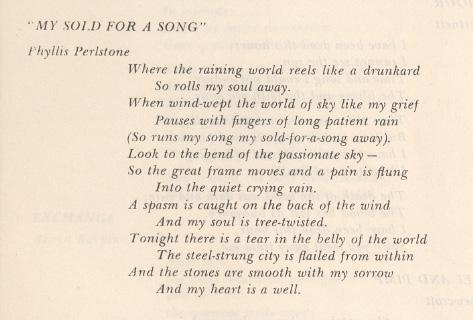


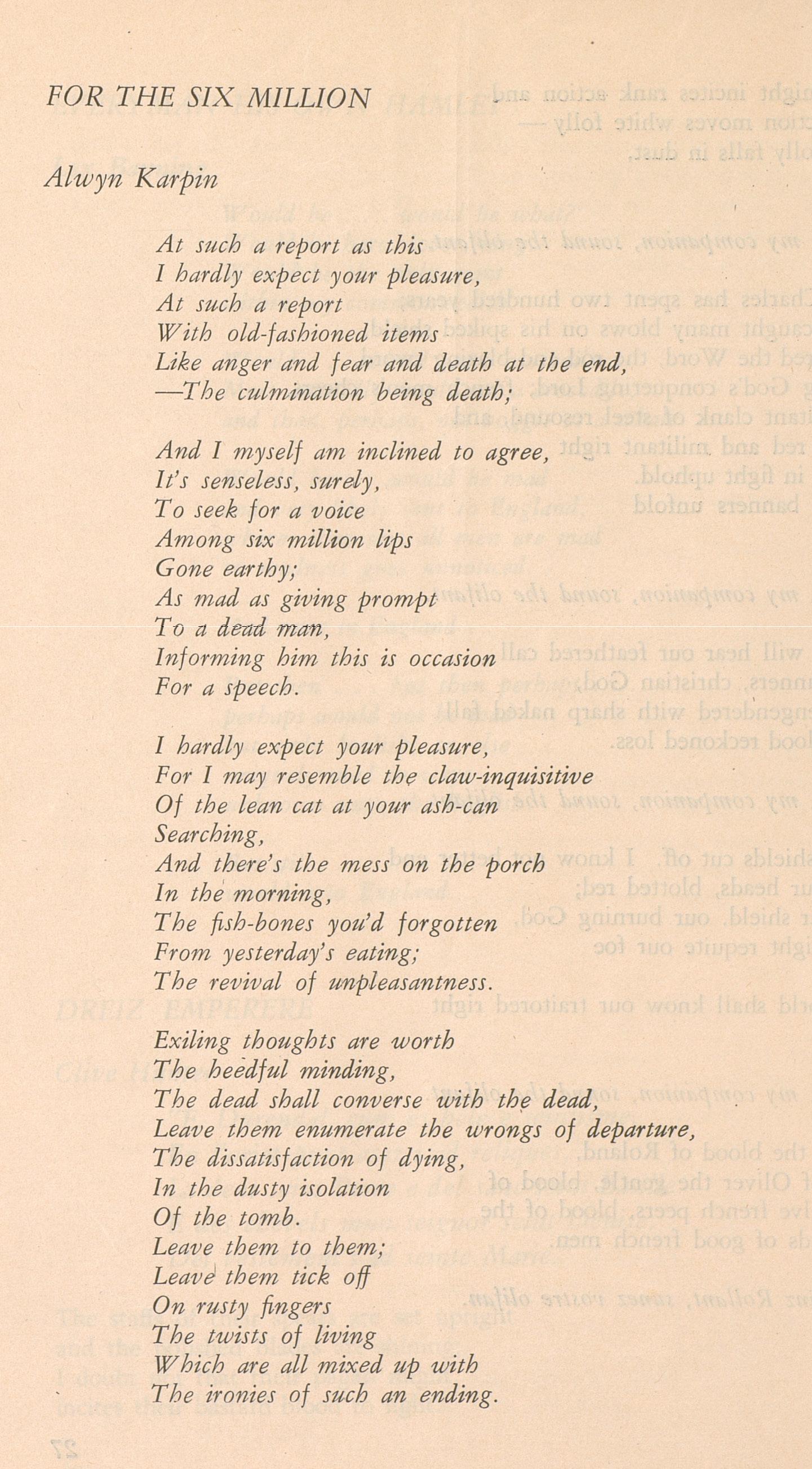
Alwyn penned “For the Six Million” at 19 years old. His mother and father, both of Eastern European Jewish background, immigrated separately to arrive in Australia in the 1930s. The poem communicates a coexisting experience of connection and disconnection. The Holocaust, as a coordinated effort to eliminate Jewish people, forced Alwyn to confront his identity as an other. Despite being remote from the war, and his very limited connection to Judaism as a religious practice, the poem reveals someone trying to make sense of a kind of relationship that is not impacted by geographical distance. His unease with the subject matter emerges in interruptive apologies for the “narrowness” of his theme or his “pallid manner”. As he traces his own relation to the subject, the poem is given a sense of dynamism, his thoughts finding articulation in clever metaphors. The unbearable shock of events just unfolded rings through his lines.
Alwyn’s poem would eventually be read by Phyllis Perlstone, a 17 year old first-year arts student. She worked hard to win a scholarship that financed her
Finding your receptive reader: A love story born from USyd’s oldest literary journal
university education, choosing to study English, Philosophy, and Psychology. Recalling her experience, she described herself as an adamant non-conformist, finding so many of her assigned English readings dull and predictable. Unsurprisingly, these observations weren’t appreciated by her professors. It was Sylvia Plath who fuelled Phyllis’s passion for poetry; Plath’s mocking tone, and sardonic critique of what women might “aspire to” that gave shape to Phyllis’s understanding of how poetry could give voice to
First published in 1886 by the Sydney University Union, Hermes was an annual literary journal that fostered the creative desires and expressions of students. It holds the prestigious title of Australia’s oldest literary journal. It published a mixture of fiction and non-fiction, poetry and prose, and cultural commentary written by students, for students. For Alwyn, and presumably for many others, it offered a space where ideas could be debated, and students could gain exposure for their writing. Unfortunately, it was shut down in 1969, potentially due to a perceived oversaturation of university publications with the advent of Honi Soit, The Union Recorder and ARNA Or maybe it was shut down due to conflict over the direction of the magazine. The editor’s foreword of the 1969 edition, declares that the magazine would no longer “be literary in content” as that would be “fairly irrelevant to Sydney University in 1969.” It was resurrected in 1985, before morphing into a printed catalogue, hosting selected submissions for the creative literary awards held by the union — now the University Student Union (USU) — and then officially died around 2020. PULP is now the USU’s sole arts publication.

Reading her first issue of Hermes, Phyllis was struck by “For the Six Million”.
“I was incredibly attracted to the skill and movingness of his words,” she remarks, “his ability to capture a feeling that I too had grappled with.” Phyllis, also of Eastern European Jewish descent, found the experience of the war a similarly contradictory experience, feeling like an outsider and an insider at once. After reading the poem, Phyllis bumped into Alwyn somewhere in the quad, at a meeting for a left-wing student group, The Push, although she doesn’t recall being too involved in that. She remembers talking to Alwyn about his poem and that they bonded over a mutual love of poetry. I suppose one thing led to another? She is 90 now, so the in-between is not easy to recall. I do know however, that in a perfect sort of symmetry, they both published poems in the 1951 edition of Hermes. Phyllis wrote “My Song Sold for A Song” depicting the aftermath of war on the natural environment. Alwyn wrote “Exchange” which is most likely about Phyllis.
That same year, they got married, and Phyllis found out she was pregnant. She was 19 now and made the decision to drop out of her degree. A life of domesticity and motherhood was looking straight at her, and she
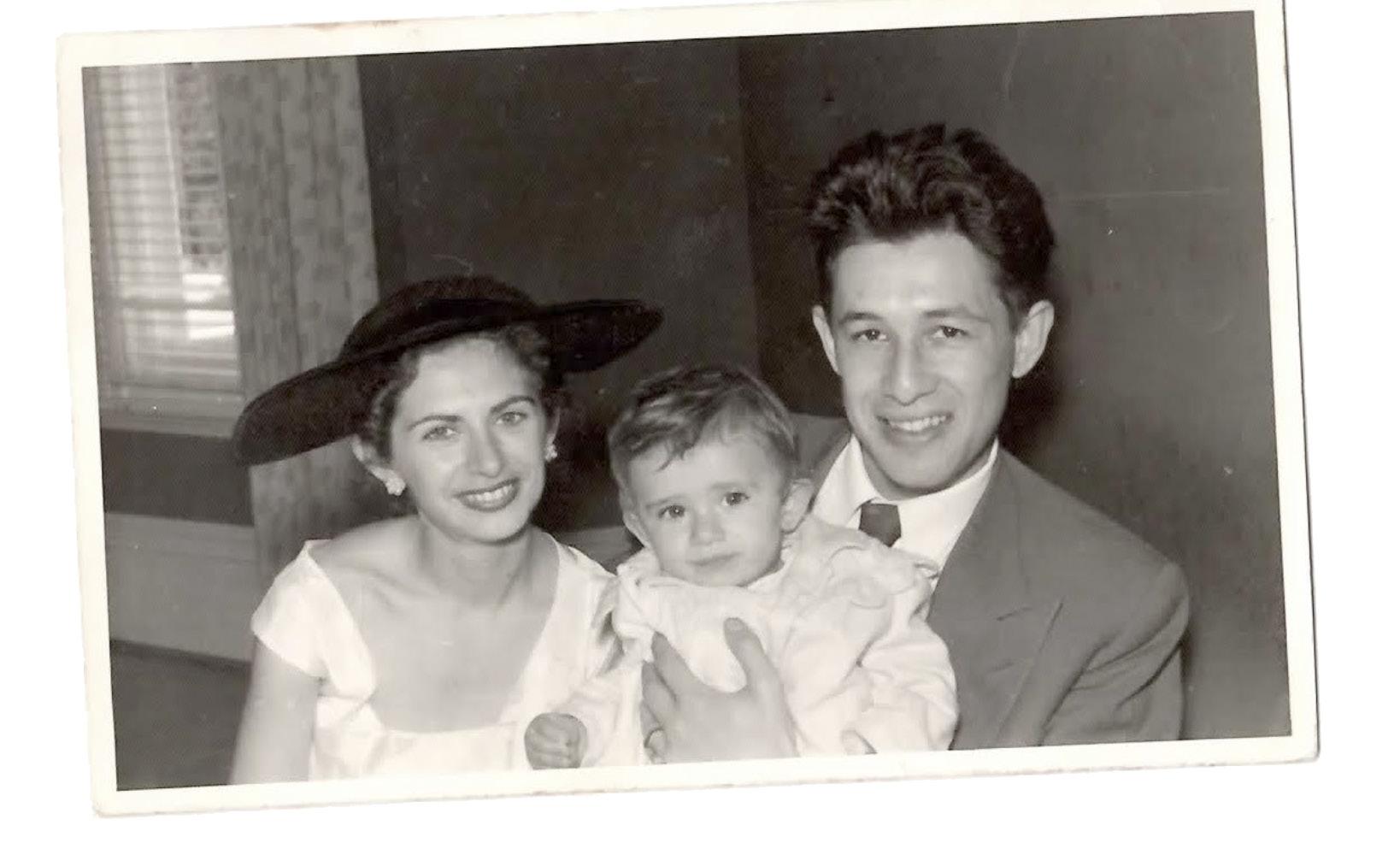
abortion and took a job at David Jones where she was swiftly fired when they learned she was married. I asked her why she dropped out of university and she found it hard to explain, returning to that feeling of outsider-ness. “I made a connection with Alwyn that I didn’t have with anyone or anything else and so there was really nothing to hold on to.” Eventually, she and Alwyn did start a family and Phyllis attempted to perform the role of a domestic wife. “I was never very good at it because I found housework extraordinarily difficult,” she tells me. She turned away from poetry. After 19 years together, and four kids later, they broke up, re-partnered and Phyllis returned to university to complete her degree.
Both my grandparents, Alwyn and Phyllis, wrote poetry for their whole lives. Alwyn continued to write, affected by his loved ones and occurrences around him, until he died in 2020. Phyllis writes to this day, and at time of writing has published five books of her poetry. This story advocates the cosmic power that transpires when poetry, love and print media intersect. Alwyn didn’t write his poem for Phyllis, but in some ways he did, because he found a receptive reader in her. Poetry has this capacity to describe the contradictory impulses and parts of our identity that don’t make sense, and publications like Hermes enable students to hear that from each other, where otherwise they may not.
Thank you to Marlow Hurst for contributing information about the history of Hermes.
8
Ondine Karpinellison explores the power of poetry.
Angry Penguins and Tall Poppies: The life of a poet who never lived.
Australian poetry in the first decades of the 20th Century was marked by a level of almost unmatched insularity and literary conservatism. Out of this haze emerged Max Harris, a poet and founder of Angry Penguins, a literary magazine whose modernist credo was a much-needed turning point.
With the patronage of the noted modernist philanthropists John and Sunday Reed, Harris and his fellow Angry Penguins (as the magazine’s contributors were fittingly dubbed) began to mix with the glamorous and open-minded Heide Circle — a group of artists based at Heide in Melbourne. The Angry Penguins, with their output of innovative verse, found themselves at the avant-garde of Australian poetry. Apart from a devoted readership of painters and modernist poets, the Penguins published in respectable obscurity.
One day in August 1944 an envelope landed on Harris’ desk. It was a letter from a lady in Sydney along with some poems. She detailed how she had been going through her late brother’s effects, and found the verse.
The poems in question were by one Ern Malley, a mechanic who wrote
poems by night, living out his days as the archetype of a starving artist. The poems were surrealist. Ern Malley’s writing is distinct — because he never existed. Two soldiers, James McAuley and Harold Stewart, came up with him in a few hours of bonhomie. Both men loathed Angry Penguins, as they perceived it as publishing meaningless poems.
“Malley’s” verse was a hodge-podge, pulled from newspaper clippings, Shakespeare, and a paper on mosquito breeding. Max Harris had found his holy grail. He immediately declared Ern Malley to be “one of the most remarkable and important poetic figures” in history and published every poem in a special issue of Angry Penguins. For a time, the hoaxers were sure their plan had worked.
While McAuley and Stewart rested on their laurels, their fate was being sealed on the other side of the country. The hoax had gone to plan until the eagle eyed Honi Soit editor Murray Sayle, in a prelude to a later-distinguished career in the fourth estate, realised that the return address on Harris’ letter was from Stewart’s home, then still on the University’s files. Adelaide University’s On Dit, by “means of prompt student
You don’t know if Lachlan Griffiths exists.
action” broke the story, and it made its way to the major metropolitan journals. The pair had been caught out, and Malley, for some time the doyen of modernism, was found to be a fiction.
Harris was arrested soon after the magazine was printed, and charged with “publishing immoral and obscene writings.” The trial was something of a legal circus. Prosecution witness Detective Vogelsang argued that the poems had a “suggestion of indecency” about them. Defence psychologist, Dr Reginald Ellery responded by saying that “the majority of persons were mentally lazy and would not interpret” the poems anyway.
Despite the overtures of various academics, and an Honi Soit editorial that declared “great poetry is always heretical,” Max Harris and his by now very Angry Penguins were held to have “depraved and corrupted public morality.” Harris was fined Five Pounds. Angry Penguins soon folded under the weight of legal proceedings and the ensuing cultural malaise.
James McAuley remained one of Australia’s most influential poets in later life, though his career was always
marred by the controversy the hoax generated. Harris himself continued to defend Ern Malley’s poems until his death in 1995. Ern Malley, that great artifice of surrealism, lives on postmortem, his “heretical” verse appealing to readers as much as the ironic circumstances of his birth. Malley’s work later appeared in the Penguin Book of Modern Australian Poetry, ironically alongside James McAuley. I’m sure everyone concerned, from Harris, to McAuley and Stewart, would laugh at the fact that undergraduates 80 years after the fact still devote column inches to Ern Malley, the only fictional poet to ever be published.
Ern “himself” captured the mood of the affair very well:
“It is necessary to understand That a poet may not exist, that his writings
Are the incomplete circle and straight drop Of a question mark”
E. Malley.
It’s like, about time that we stopped, like, criticising the way students speak.
For students with marginalised experiences, there are few spaces that are more unwelcoming than university classroom discussions. Whether it is the quiet mocking, unnecessary criticism or blatant interruptions, hostile learning spaces discourage participation, depriving students of learning opportunities. To hear the evidence of this, all a student needs to do is listen to the different uses of, and reactions to, discourse markers in their classrooms. Or as they are more intolerantly known, “filler words”.

Defined as a word or phrase that manages the flow and structure of speech, common discourse markers in the English language include “I mean”, “you know” and “like”. Their use correlates with both age and gender, with young female-identifying people using more frequent discourse markers in their speech. Though I have my own gripes with personality psychology, the frequent use of discourse markers has also been associated with conscientiousness. This suggests that students who use these terms are more aware of their peers and surroundings. And, they are making interpersonal pleas to be understood.
However, the use of the discourse markers is commonly linked to an assumption that the speaker is less
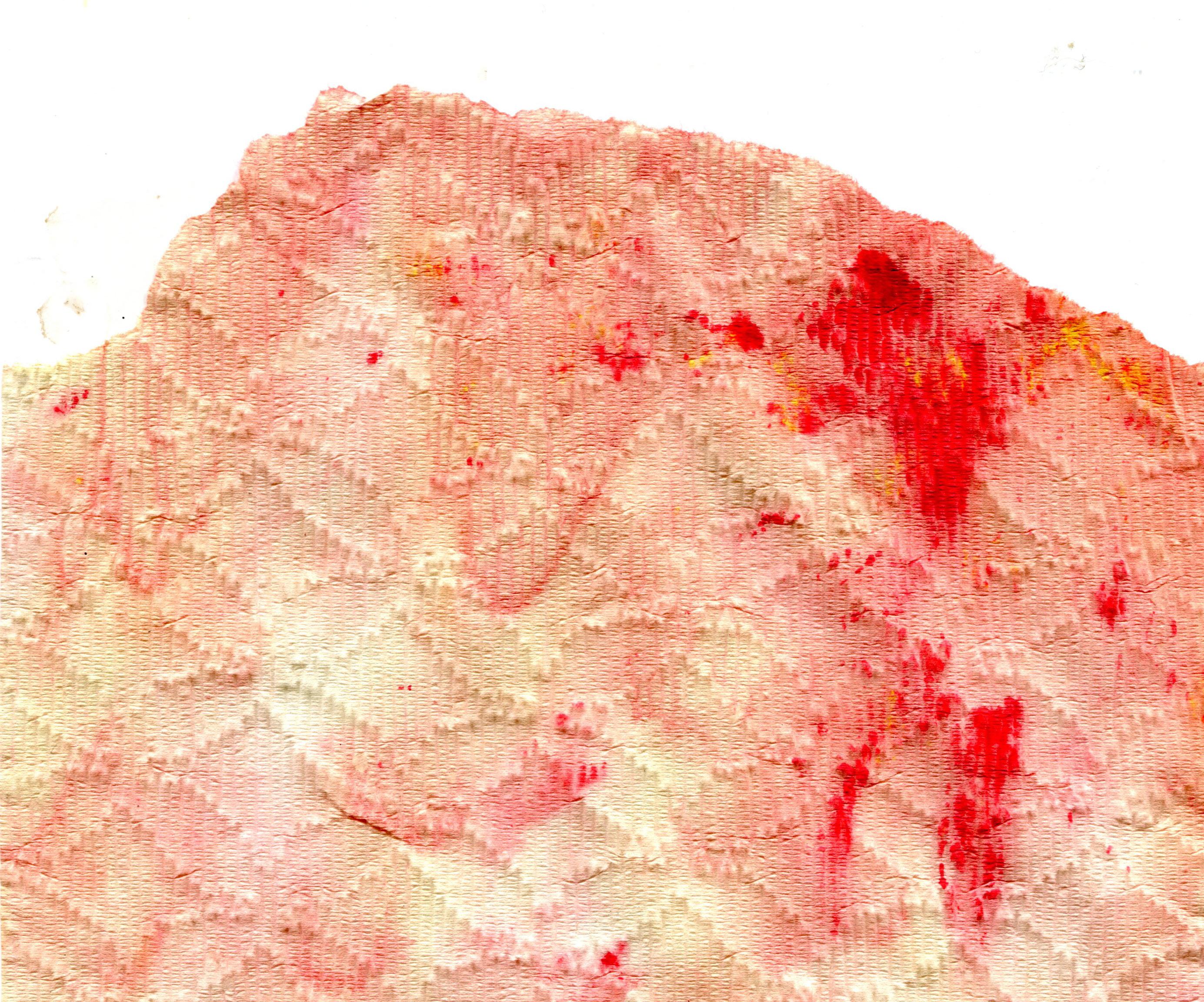
educated. One such example that comes to mind is the “like” of a stereotypical “valley girl” accent, and its association with ignorance and banality. The criticism is clearly a gendered one, masquerading the belittling of young women’s identities as disdain for “improper” language. Degrading someone based on the way that they speak communicates a larger judgment: what they have to say isn’t valuable.
This made sense as I recalled instances where my own use of language had been criticised — my “overuse” of the word “like” is undoubtedly one of my parent’s biggest pet peeves. Strangely enough though, my clearest memory of being “called out” for the use of a discourse marker is from an instance where my speech lacked one. On a coach bus to JFK Space Centre, the guide asked our group if we knew what the first animal that was sent into space was. I knew — it was a Russian stray
Gian Ellis-Gannell wants to talk in class.
dog named Laika — so I answered. And the guide replied, “Aren’t you supposed to say ‘I’m not sure if this is right, but,’” followed by a quip, “No humility?” It was expected that I, as a young woman, would use a discourse marker that explicitly indicated my deference to an authority figure. Regardless of whether I was correct or not, a young woman who speaks with confidence is perceived as a threat to patriarchal norms.
In her book, Learning to Lose: Sexism and Education, Australian academic Dale Spender noted that male-identifying students perceived female-identifying students to have dominated class discussion even if they spoke for as little as 30% of the time. In truth, male-identifying students have been found to occupy classroom sonic space 1.6 times as often as women. Similar results have been supported many times over by international academics, and suggest that women are confined to occupying a miniscule space in university discourse.This only further supports how harmful language stereotypes can be — classist, racist and misogynistic prejudices are being deeply embedded into university graduates.
In a study exploring how universities “chilly climate” for women contributes
to the stalled gender revolution, Lee and Mccabe (2021) note that cultural beliefs, such as language stereotypes, which “assign more status and competence to men than to women continue to frame social relations, thereby perpetuating gender inequalities” both within and beyond the classroom.
Furthermore, it limits the potential of women. If they aren’t perceived to demonstrate the “right” amount of humility, they are seen as cold, arrogant, bossy, or bitchy. If they use too many discourse markers, they are seen as lacking confidence, intelligence, and capability. It’s a double edged sword, one that people must wield every day when wading into classroom discussions, one that directly impedes learning.
How can we say that students have equal learning opportunities when one half of the room must navigate a political minefield in order to be listened to?
I, personally, will no longer try to rid myself of the “bad habit” that is using frequent discourse markers. My voice is a function of my personality: the fact that my speech demonstrates care for my peers, and a desire to be understood, is like, totally a strength.
Culture 9
Dreaming through disaster: why we need utopias
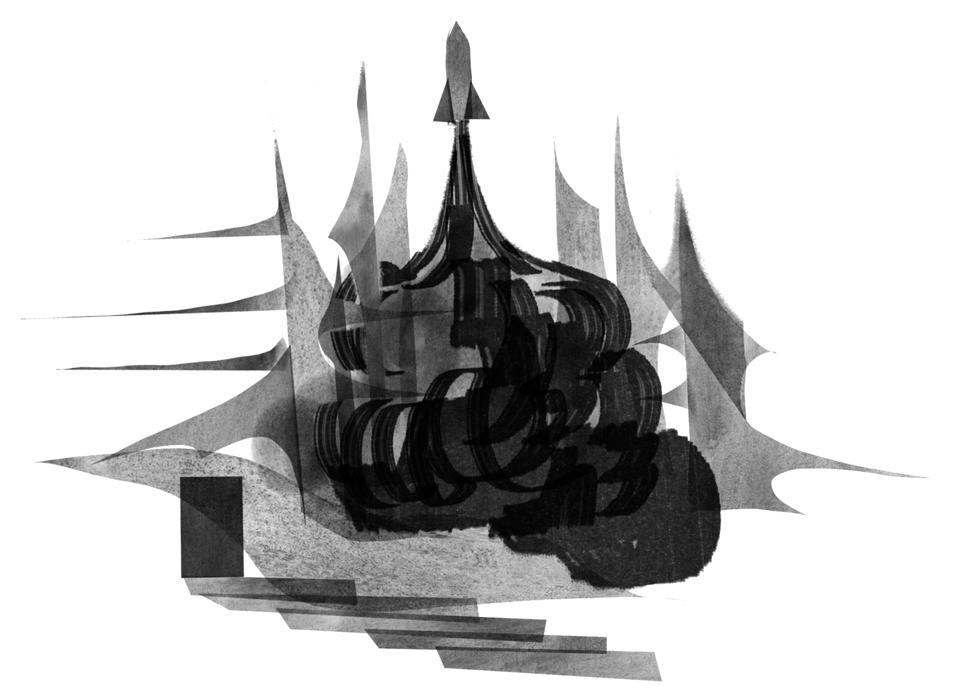 Daniel Holland dreams of a better world.
Daniel Holland dreams of a better world.
We live in an age of disaster and dystopia played out on repeat, from movies like Interstellar that depict worlds wrecked by climate change, to novels like The Hunger Games that envision cruel, authoritarian futures. Amidst this new reality, utopias have faded from popular culture. However, to give up utopian visions is to give up challenging the societal structures they critique; it is to submit to the imprisoning logics of neoliberalism. To realise the revolutionary dreams that our crumbling planet cries out for, we must instead embrace the utopian call: another world is possible.
Ursula Le Guin’s landmark 1974 science-fiction novel, Dispossessed, stands as an icon of utopian literature. The novel portrays an anarcho-syndicalist society that inhabits the moon Anarres, built upon decentralised governance structures and collective ownership of production. However, this world shares very little with typical notions of utopian paradise: aside from a few fertile regions, Anarres is spanned by harsh landscapes of vast deserts and salt lakes. Le Guin portrays utopia as emerging not from the final fulfilment of all material needs and the existence of a post-scarcity future, but from the human bonds formed by persistence in the face of overwhelming scarcity. Human solidarity ensures that no-one on Anarres goes unwillingly hungry or unhoused.
Le Guin’s lessons are now more relevant than ever, effectively rebutting those who target the Global South with doom-laden claims of overpopulation. The Dispossessed suggests that poverty and homelessness in our own world are
not the product of lacking abundance, but rather a failure in our modes of distribution. One-third of all food produced globally is wasted before it reaches the table. Can we truthfully claim that the 828 million people who went hungry in 2021 were merely victims of an inescapable natural
the truly radical ones. We’ve recently seen a line of billionaires that pay lip service to our collective humanity while offering up their own “utopias”, but their individualistic visions lack the human solidarity of radical worlds. Elon Musk wants to have one million humans living and working on Mars

machinery of debt, it seems, will be thrust out beyond the bounds of Earth and into the cosmic expanse. It’s a far cry from the moneyless, humanist spacefaring utopia of Star Trek
These false utopian dreams deserve every bit of the derision they receive; accusations of escapist fantasy are rightly levelled at them. However, not all utopias must be doomed to this fate. The Marxist philosopher Ernst Bloch talks of a utopian “impulse” woven throughout society, the human urge to never stop dreaming of a better tomorrow. Acts of everyday, practical utopianism are all around us, in our protest and fury, and in our solidarity and kindness. We need utopias so we can channel this impulse into something tangible, for revolutionary fury without hope only leads to selfdestructive defeatism.
work. The Dispossessed shows that the label of “utopia” need not be relegated to perfect, unachievable societies. Despite being damned to an imperfect reality, we still have the power to change it. Utopia is what we make it. While we need utopias to aspire to, it’s just as important to separate the faulty and contrived visions from
Art by Jun Kwoun
indentured servitude for those who require loans to afford a jaunt to Mars. In a 2020 Twitter thread, when asked how travellers would work off their loans, Musk proclaimed that “There will be lots of jobs on Mars!” For him, space is nothing more than a new frontier for human exploitation in the pursuit of profit. The grinding capitalist
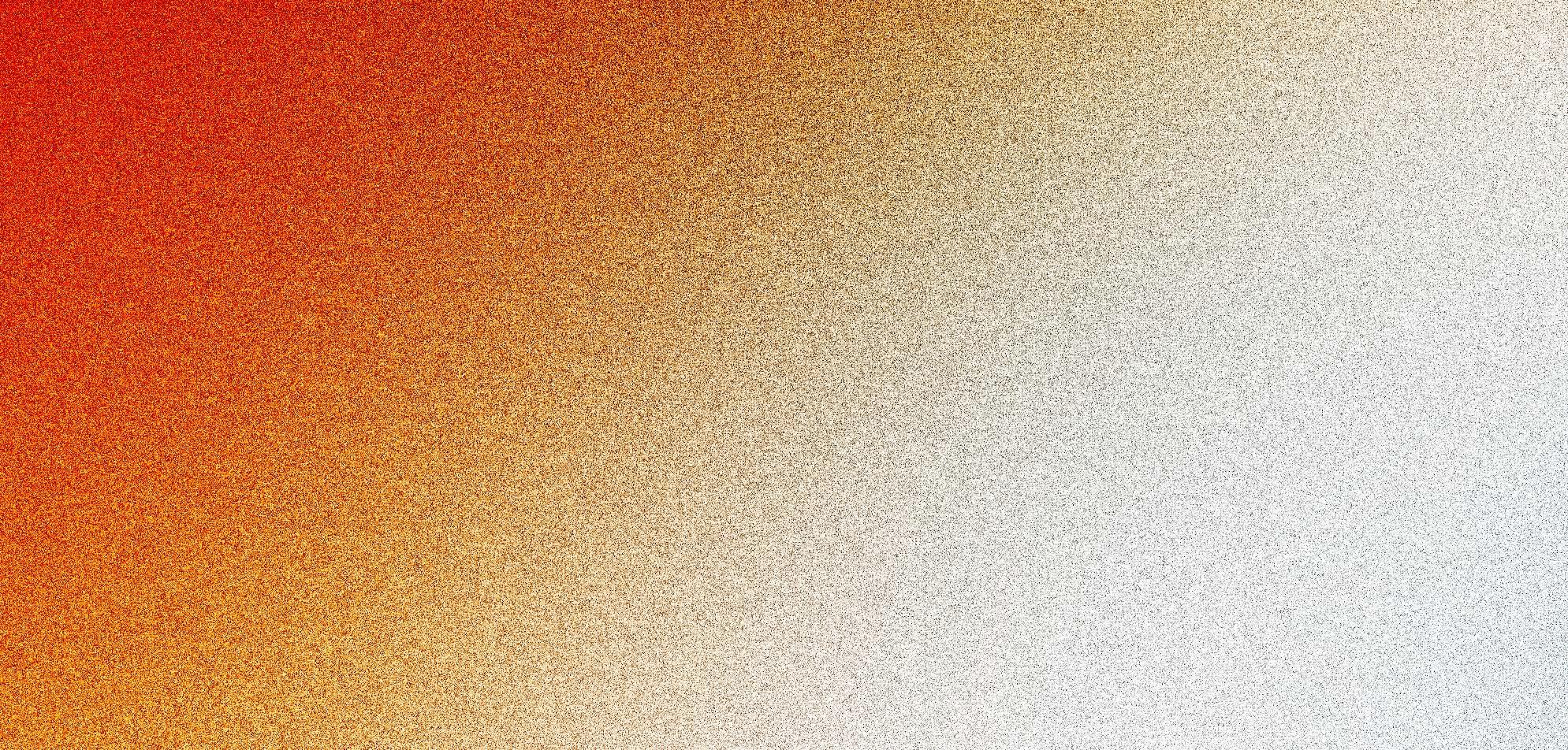
The Madness of the Method:
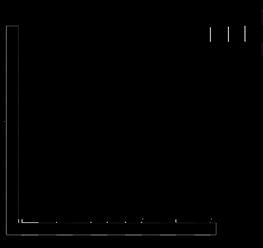
The nascent Solarpunk movement, for example, imagines a green, economically just society emerging from a post-capitalist world. The Solarpunk ethos draws upon a broad cross-section of society, bringing together artists and writers with activists and community leaders. It’s a vision of democratised energy production via household solar and battery storage, and widespread recycling in a circular economy. I think we can already see the seeds of a Solarpunk future today, in the rising popularity of quaint community gardens and local co-operatives. These are the practical utopias we can build right now.
Utopias are all around us. We only need to grasp them.

Why do we obsess over actors’ extreme weight transformations?
or guzzling melted butter for three months, and we wonder out loud whether they’ve taken it all too far. It’s a mix of outrage and awe at the actor’s commitment, all with hushhush descriptions of “going method” mixed in.
In a culture preoccupied with bodies, a famous actor gaining or losing weight is sure to lend hype to their upcoming film. Articles pop up about them either passing out
Method acting, known as “the method”, is a theory of acting that aims to dig deep into an actor’s psychology and produce authentic emotions. The method is an Americanisation of Konstantin Stanislavsky’s famous “system” of acting — a series of exercises that helped actors prepare for performances in a naturalistic style. Developed by Lee Strasberg, Stella Adler and Richard Meisner
in the 1930s, it was popularised in the decades to come. Amongst the followers of the method are some of the most critically acclaimed actors of the last hundred years, including Robert DeNiro, Marlon Brando and Al Pacino, but the practice remains highly controversial. In method acting, the goal isn’t just to convincingly play a part, it is to actually embody it, which is where the danger comes in.
Any form of acting, by definition, makes demands on the body and mind of the performer — and few make more demands than the method. Many people, including method acting’s co-developer Stella Adler, have criticised branches of the
method (particularly Strasberg’s) for straying from Stanislavsky’s vision and introducing exercises designed to dredge up an actor’s emotional traumas. In Richard Horby’s words, the method’s “fetishisation of emotion” and authentic experience gets in the way of the actor’s ability to, well, act.
Lucy Bailey questions what we see on and off screen. Acting is all about bodies, and Christian Bale wants us to watch his transform. In American Psycho, he is 90 kilos of muscle flexing in the mirror. In The Machinist, he is all sharp bones and a hollowed out stomach. In Vice, he is carrying an extra 20 kilos of fat—concentrated mostly in his neck via the help of a nifty three thousand dollar machine. But, of course, Christian Bale isn’t just a fat guy or a thin guy: his body, he tells us, is a
However, it is hard to imagine that Strasberg could have foreseen the way that his acting philosophy would combine with our culture of individualism and media saturation. Today, the method carries cultural baggage with it in the form of stories, of actors like Heath Ledger whose deaths are synonymous with the extremes of
Culture 10
Fluffy Friends: The Untold Companions and Comforts of Childhood
Sitting tenderly on the top of my bed, against the pillows, is a bunny rabbit.
Conveniently on theme, her name is Bunny. Bunny’s body sinks limply against the deep green comforter.
Noticeably, her left eye has been stitched on three times and her once bright pink fur is now a coarse greyish blush. Along her limbs, the connecting stitches hang loose and remnants of the past repairs remind my hands of the many lives she has lived. I was gifted her when I was a newborn and she has been my most constant companion ever since.
Growing up, whenever I was distressed my parents would assure me that since “Bunny was always with me,” nothing could hurt me. She would protect me from the hairraising monsters, the night terrors or the unshakeable illnesses that kept me from sleeping. Her fur would catch my tears as I begged and pleaded with the walls to fix my problems or dissolve my tragedies.
Distinct memories of doomed fights with my parents or the aftermath of broken hearts are always associated with Bunny. I recall almost shrinking in stature as I wept unbearably into Bunny, cradling her tightly. Despite this she would wait at my beck and call — ready for my next explosion or joyous rupture. If there was no one else in the world left, I knew she would be there with me.
authenticity to which they took their performances. Rather than repel, these stories serve to titillate, and our media ecosystem chomps at the bit for more stories of actors suffering in the name of their art — particularly if they can be published beside a bikini picture.
When Lily Collins risks re-triggering her own eating disorder and loses 10 kilos to play an anorexic teenager, she’s rewarded by articles celebrating her bravery, alongside plenty of pictures of her emaciated body for readers to stare at. For readers, her decision to toe the line of her own health and sanity is a testament to the authenticity of her performance, and her transformation satisfies our desire to consume images of the bodies we consider as ‘other’: invited by Collins herself to look upon hers with horror.
This problem exists in higherbrow discussions of acting, too. At awards shows, actors are celebrated on the basis of their individual achievements, and the condition that


Flocculent friends of all forms and arrangements are the untold companions, therapists and scapegoats of our childhood. They see you weep, and they are there through the happy times too. They get thrown around, discarded, personified and temporarily forgotten. They are an unbreakable beacon of comfort. Even when they are tucked into boxes or flung under beds, they are a tangible symbol of the growing pains of getting older.
Soon I realised that I was not alone. Many of us have a comfort item like Bunny. My friends had special blankets or their own fluffy friend. I realised this is more than childhood nostalgia or a case of “Peter Pan Syndrome”.
Some keep theirs at the top of a shelf looking over them, whilst others keep them on their bed, steadfastly guarding their pillows. I am the latter. I see no need to disconnect from this part of my childhood when all she has done was serve me well. Even though she is now part of the decor, her memory and her impact still ring true.
safety and companionship. As we navigate the changing ages and moving from one life stage to another, these companions serve as a source of security. Before the age of 13, my family moved 6 different times. Everytime, the first thing I did to acclimate to my new space was save a spot for Bunny. Bunny, and our fluffy friends, take on a sort of “transitional object” role which allows us a sense of security and sameness. They are a steadfast boast during the tempest of life.
Zeina Khochaiche snuggles up.
The concept of stuffed animals and comfort items are an embodiment of our inherent desire for comfort,


their performance reaches a higher level of authenticity than that of their peers. And, for this benchmark of authenticity to be achieved in the eyes of the image-hungry audience, there is no clearer way than for it to be literally manifested in the body of the actor.
As David Krasner points out in his book Method Acting Reconsidered, it has become trendy for scholars to criticise the method despite its deeply embedded role in our culture. This year, Brendan Fraser took home the Oscar for his starring role in The Whale, but his performance drew criticism from activists because of his lack of lived experience in a fat body. We can’t deny that our culture values lived experience in its storytellers, but we haven’t yet paved the way forward for actors who do more than flirt with the idea of living in marginalised bodies: actors in these bodies, particularly fat actors, find it harder to break into the industry and
More powerfully, they allow us to connect with and console our inner child. A way of giving the turbulence of our past a soft embrace. Our fluffy friends have bared witness to it all, despite our disconnection from past traumas and triumphs. And their response is the same every time. They have dutifully caught every tear, they have smiled as you squealed in joy and they have braced the confusing ordeal of adolescence.
escape being typecast for their body shape and size.
Casting actors who don’t simply try on these bodies satisfies the method’s demand for authenticity but not of the demands of the Hollywood apparatus at large. After all, part of a celebrity’s job is to sell the clothes they wear on the red carpet and pose on magazine covers; the purpose of these images is to appeal to Westernised beauty standards, so participation becomes fundamentally inaccessible
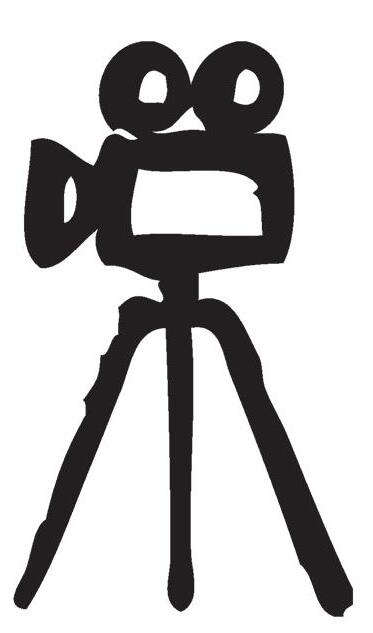
Without knowing it, these objects are a symbol of the past and all that we have overcome. But now our fluffy friends are torn and tattered, bruised and broken, loved and lost. They might even stay around long enough to comfort another generation.
I turn 21 this year and I have no intention of disregarding Bunny. Her stitches stand for my stitches, as I repair my troubles and soothe my fears. Her faded fur stands for my growth as I shed and change the faces I show the world. Her stature stands for my experiences, as I navigate the swirling storm of existence.
to actors whose bodies aren’t considered conventionally attractive. To change the status quo, we need to challenge why these bodies are othered, and to challenge why we see adopting them for a short period of time as a sign of an actor’s self-sacrifice.

Behind every shocking body transformation onscreen is a desire to consume images of marginalised bodies, and to court the danger that temporarily adopting these bodies presents. To create change, we

Culture 11
They are an unbreakable beacon of comfort.
As we navigate the changing ages and moving from one life stage to another, these companions serve as a source of security.
Art by Claire Hwang
“Articulate” comes from the Latin “articulus”, meaning small connecting part. To articulate something is to divide it into small joints, each of which comprise a whole. Over time, this took on a metaphorical meaning: to break an idea into parts for ease of communication. Now, “articulate” has a positive value judgement imbued in it. Being articulate means being able to use language well.

I acquired language, I expect, in the way that every child does. Babies start babbling at around six months, testing the sounds that they can make with the parts of their nascent mouths. They don’t know it, of course, but the parts of their mouths that they are getting used to — their larynx, their soft palate, the alveolar ridge and the gums from which their teeth will start to grow — are called articulators. At one and a half years old, babies typically start to utter words with meaning. These words are often short, simple patterns of consonants and vowels. By virtue of a baby’s still-developing articulators, the first consonant sounds they are able to utter are usually bilabial, where the point of articulation is the baby’s lips: [m], [p], [b]. It is no coincidence that the most common first word for babies is “mama”. “Mama” is designed to be said by newborn mouths.

The exact origin of language is unclear. Linguist Noam Chomsky proposed the idea of a Language Acquisition Device (LAD): an organ possessed by humans and no other animal which makes the development of language possible. It explains, he argues, how humans are able to acquire language so easily, and why no other species has developed something equivalent to human language. Animals do, of course, have communication systems. These systems can be quite complex. There is evidence that dolphins have systems of
individual reference, and Campbell’s monkeys can develop protosyntax. Human language, however, is infinitely more complex and advanced. It is selfreferential — we can talk about prior conversations.

It can talk about the past and the future, and other abstract ideas. It provides means to use metaphor. We are, so far, alone in this capacity. Chomsky’s LAD is widely contested. Academics like JF Stein suggest that humans were able to evolve language due to several physical factors in our evolution: our left brains developed, our larynxes dropped, we started walking upright, and these factors gave us greater control of our vocalisations. Additionally, with the advent of society came an alleviation of natural selection. As we formed communities, built houses, cared for each other, learned to farm, it was no longer true that everything we did was driven by survival. In these communities, the language that we now know — the gossipy, poetic, metaphor-rich way we speak — was born.
It seems obvious to say that language has always been important to me. It is a tool that enables us to ask for things, to apologise when we have hurt our friends, and to learn more about the world around us. From the moment we start putting concepts to sounds or signs, language is a part of what it means to be a human. I have always loved language, though, in a particularly nerdy way. I prided myself on being able to spell words correctly, and still remember bitterly losing a class spelling contest because I was tricked with a homophone. I read voraciously. I wrote my own stories, too.
Words, to me, were comforting, and not just in the images and emotions they proved themselves able to conjure up. Words were little keys to ideas, to arguments, and the more I had in my hands, the more I was able to learn, to say, to communicate. I collected words like a bower bird collects shiny things, keen to adorn my homework and speeches and dinner-table conversations with them. I did this for myself, for my own insatiable appetite for learning. Just like a bowerbird, though, I knew my adornments made me stand out. Teachers told me I was smart. Adults praised me for being eloquent. To be articulate, it seemed, was to be esteemed.
The first evidence of written language comes from Mesopotamia. Tablets inscribed with Ancient Sumerian, over five thousand years old, are some of the earliest records of writing we have. Before that, there is evidence of proto-writing — depictions of objects or people, painted or etched in public places to tell stories. “True writing”, though, is the correlation of sounds to symbols. Writing is thought to have spread from Sumeria, being adopted as a useful tool for record-keeping, forming contracts, and recording the law. For much of history, though, written language was exclusively the domain of the elite — those who had the capital to barter contracts or the

Feature 12
I collected words like a bower bird collects shiny things, keen to adorn my homework and speeches and dinner-table conversations with them.
Nicola Brayan wonders about what being articulate really means.
prestige to have their words etched into stone. Before the invention of printing, it was laborious to replicate written words. The vast majority of people had no reason to encounter orthography – they learned through spoken words, stained glass Biblical scenes in Church windows. The printing press helped democratise writing, but even then, it remained exclusive to those who could afford schooling, both the cost of tuition and the time taken away from work. Today, despite ever-increasing efforts to make literacy more accessible, there are still over 770 million illiterate adults in the world. Most of them are women.
marks on my English assignments, the judge’s feedback from the debates I won, the glowing words printed on my report card. To be articulate was to be intelligent. To be worth listening to.
Although humans do not have a LAD, Chomsky’s vision of language as an organ has some merit. Spoken and signed language lives and grows, shaped by the mouths and hands of those who use it. With time and new speakers, words change their meanings, grammar slips and slides, vowel sounds dance around our mouths. Linguistic change is organic and important. It reflects new concepts, like the creation of new words like “unfriend”; new attitudes, in how pejorative terms for certain people or concepts ameliorate over time; and it embeds metaphorical meaning into words that, when we use them now, we don’t realise ever used to be literal (like “articulate”). Divergence from a written or formalised standard of language is not a sign of incompetence, but, rather, a natural byproduct of language as a living, growing thing.

tense, and double negation. Contact between speech communities produces innovation, especially when that innovation fortifies the identity of those communities.
not be contingent on the words and punctuation used to express it.
Beyond that, though, I was confronted with another jarring revelation: I’m actually not that articulate. In written word, I make grammatical mistakes all the time. I don’t know the difference between “which” and “that”. I begin sentences with conjunctions and end them with prepositions. My spoken language is even worse. Listening to recordings of myself interviewing others or making an argument in a debate, I recoil at my half-sentences, my mismatched verb and noun agreement, the filler words I use to plug silence with. I’m not concise at all, I overuse specific turns of phrase like “that is to say”. I am no better a language user than anyone else.
And that’s perfectly fine. In fact, it’s kind of beautiful.
Not having access to orthography, though, does not mean that people cannot speak language. It also doesn’t mean that people cannot speak language well. Of the over 7000 languages spoken around the world, just over 4000 have a written component. Writing can be useful, especially when communicating with large groups over large periods of time or geographic distances. It is not an essential component of language. In ways, it can stagnate language evolution — meticulously kept records of language can make deviations from its past forms obvious. Writing makes things like grammar, punctuation, and spelling more central to language expression. It hinges “good” communication upon having the fortune to be educated. On top of this, dominant languages are more likely to be taught, further shaping what we understand articulate to mean based on being part of a social or ethnic majority. This, of course, is arbitrary. Some of the world’s greatest poets may have never even picked up a pen. Being known as a grammar nerd meant that, even in primary school, my friends would ask me for help with their English homework. I did it gladly — part of it was fun, and another part of it was a chance to prove how well I knew words, how strictly I could follow the rules of the English language. Every comma I added, split infinitive I repaired, hung preposition I cushioned in noun phrases was proof that I was articulate. Articulate was the last few
The speakers of language who are most likely to innovate it are those who are most likely to be excluded from the bodies that regulate it. Young people, women, racial and ethnic minorities, and members of subcultures with jargon are consistently at the fore of linguistic innovation. This is true for a number of reasons. In some cases, in-group language is a necessity to create a community, especially a covert one. Participants in Ballroom culture in the US — a queer subculture dominated by Black and Latinx speakers — produced coded language that could be used to identify other members of the same group without outing yourself. Many of the words they innovated are used widely today: “throwing shade”, “realness”, “yas”. The same is true for Polari, a dialect created by queer people in the UK — the name itself is a pun on “parlare”, the Italian word meaning “to speak”. Linguistic innovation brings safety and community.
Beyond this, innovation is an act of reclamation and ownership. Dialects like African American English and Aboriginal English were born of colonial contact between English speakers and the people who they enslaved or stole land from. Colonisers stripped the people they subjugated of their languages, separating speech communities and forcing them to speak English. To take the coloniser’s tongue and make it your own, imbuing it with Yoruba or Wiradjuri grammar, subverting the arbitrary conventions it inherits from generations of elitist academia, is to make it your own. Evidence of this reclamation is evident in AAE in its embedded copulas, habitual
Linguistic innovation occurs when language is spoken freely, without judgement, in groups not concerned with prestige. The frontier of linguistic innovation has historically been women’s meeting places, the kitchens and laundries that they gathered in to chat. The act of idle conversation, unconcerned with proper syntax or pronunciation, in groups which span wide networks of people, breeds linguistic change. The same is true of young people on playgrounds. These conversations reset norms around what is and isn’t understandable, swirl together outside influences, weed out redundancies or complications. If language is an organ, linguistic innovation — the very kind championed by those most excluded from academia — is the heartbeat which pumps blood through it.
One of the factors that sets human language apart from animal communication is its capacity to be self-reflexive. We can use language to talk about language. In the last five years, I have done an awful lot of talking about language, both in my coursework and the articles that I write. I began University clutching the descriptor “articulate” to my chest, holding it tightly for fear of losing the value it had brought me. Learning more about language has caused my grip to slacken. The value I gleaned from “articulate” was a blunt and arbitrary tool used to diminish the opinions of those who didn’t speak the way I did. Perhaps, there was no pride in knowing what an Oxford comma was. Of course there wasn’t. The value of an idea should
When a child learns language, they are not unlocking some part of their brain which has vocabulary and syntax ready to go. Everything they learn, they work out from the sounds they hear. This deductive process extends beyond initial language acquisition. The lexical ornaments my young self adorned her writing with were plucked from the books I rabidly consumed, the conversations I had, the movies I adored. When I debate, I steal turns of phrase from speakers who I admire for their eloquence. These words and expressions enter our mental lexicons both consciously and not. The tools with which we express ourselves are fashioned from years of hearing others’ self expression, from learning and loving and making things anew. I would like to think that, with thought and revision, I write things coherently. When I speak aloud, though, my bumbling mess of phrases is nothing but a string of all the words and syntaxes I have heard said to me.
Before it gained the metaphoric sense of eloquence, to be articulate was to be composed of a sum of small parts. The way we speak is, fundamentally, a sum of small parts. The dropped larynx of a Neanderthal aeons ago. The first “mama” from a baby’s lips. A fragment of an engraved tablet. Quips traded around a communal oven. A defiantly embedded copula. A phrase with a covert meaning drenched in both love and fear. A slip of my tongue as I make a point, echoing the friends I admire. To speak is to be human. To be human is to be articulate.

13 Feature
Young people, women, racial and ethnic minorities, and members of subcultures with jargon areatconsistently the fore of linguistic innovation.
The tools with which we ourselvesexpressare fashioned from years of hearing others’ self expression, from learning and loving and making things anew.
The Other Side: What university doesn’t teach you about Teaching
When I started university, I expected that after my four years of study, I would emerge as an educator, armed with all the tools and skills I needed for a successful career. Like the chrysalis that transforms into a butterfly, I would transition from a bright-eyed and bushy-tailed student into a wise teacher, ready to change the lives of all the students who passed through my classroom.
Upon reflection, four years seems like a long time when you are in the middle of it. However, having been in the classroom for one term, I think that four years actually wasn’t long enough.
After starting my first full-time teaching position, I knew from the outset that I had my work cut out for me. But what I wasn’t entirely prepared for was the immense pressure and expectation placed on a teacher by families. I was quickly inundated with messages from concerned parents, asking for additional resources and meetings. Whilst I can understand the natural tendency of parents to worry and want the best for their children, what seems apparent to me is that education has become commodified.
Rather than trusting the natural learning and development that schools facilitate, parents seem to assume that because they pay, we as teachers will bend over backwards to comply with their requests. Given the
current teacher crisis that is plaguing NSW schools, I am left wondering why universities don’t spend more time teaching our future educators how to manage this delicate balance between care and subservience. There is no doubt that teachers are some of the most generous and selfless people you will meet — and I’m in no way suggesting that should change. However, I do think Education students would benefit from knowing their responsibilities and rights, before they get into a job and succumb to the pressure of needing to constantly please families.
In university, there is a tendency for everything to be over-intellectualised. Rather than learning the practicalities of handling a class ensuring they are listening to the teacher, we are taught the four types of pedagogical styles. Rather than learning how to de-escalate a child’s emotions, we are taught how to fill out paperwork. That’s not to say that these things aren’t beneficial, but now being in the classroom, I feel that this approach neglects the nature of teaching as an art form. We are told that our practicums are where we practise our classroom management skills. But how can we really be expected to refine the art of classroom management in these short 3-6 week placements? I think the answer is that we can’t.
A First Year Teacher is learning from the front of the classroom.
Throughout my degree, peer teaching was commonly utilised as a way of assessing our pedagogical skills. Whilst the practice of designing and implementing a lesson in front of others was invaluable, teaching a group of fourteen adults is definitely different from teaching a class of 35 seven-yearolds. Unlike the adults, seven-year-olds scream, shout, get confused and resist. They touch instruments when they are told not to and complain when they’re bored. Going into this environment from the bliss of teaching adults is nothing short of a rude awakening.
At my current school, I am lucky to have a class that is incredibly respectful, so classroom management is rarely an issue. But having taught at a number of other schools, I know this isn’t the same experience for all teachers. I still remember the shock of being faced with one such rowdy class on a casual day as an early career teacher. I remember mentally flicking through all the training and study I had done throughout my degree, hoping desperately that there might be something, anything, on how to respond in the given situation. Alas, I came up with nothing.
No papers on authoritarian or democratic leadership proved to be particularly helpful to me at that moment, and it forced me to question whether a potential shift in focus from
a theory-based system to a practical one might help us retain the precious few educators we have left. When we educate children, we do so with the hope that it will prepare them for the future. However, I find it ironic that we don’t do the same with how we prepare our teachers. If we don’t give them adequate opportunities to learn and apply the skills they need, we are setting them up for failure. And that’s not a profession anyone would want to stay in.
Ultimately, the reality is that university can never prepare us for everything. However, our hopes for the education of future generations rely on our ability to critically reflect on what our graduate teachers are underprepared for today. From my experience in the classroom, I have started to realise that a teacher is not just a teacher. We are the counsellor, the confidant, the nurse, the problemsolver, the event organiser, and the carer all in one. It undoubtedly takes time in the classroom to truly understand, practise and refine our art, but without the solid foundations provided by university training, I fear that the enormity of the task will continue to force teachers out of the profession. And if there’s one thing that I know for sure after my first term as a graduate teacher, it is that whilst I might be the teacher to my students, I will always be a student.
Diaries: How do we choose what we remember?
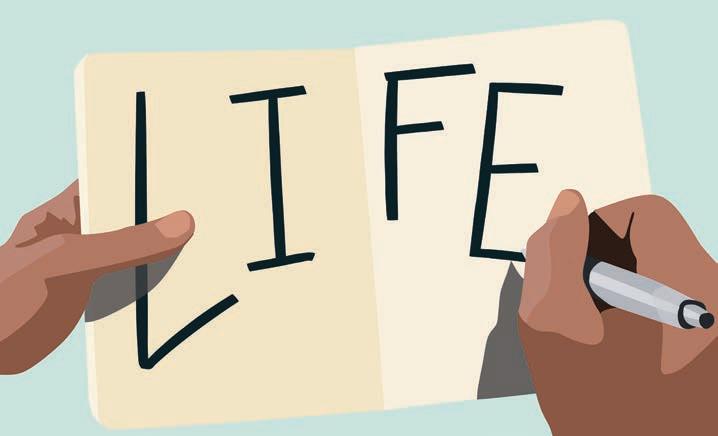
Diaries are meant to be a private and non-judgemental place to explore all of our convoluted thoughts and emotions by laying it all out on paper. They also provide a permanent record of our lives and our development as people. As someone who has been writing in a diary since 2011, I’ve looked back at my past diaries. I’ve both laughed and cringed. 12 years later, now in my early 20s, I’ve started to reflect on what they mean to me.
As much as diaries are private and non-judgemental, there is still a sense of responsibility. We know that every story has more than one side but it seems more complicated here. Remember that stupid crush you had when you were younger? You might have thought that he didn’t know but you couldn’t have been more obvious. Remember the night of the Year 12 formal? We were together the entire night but there are different memories of it in each of our minds. Yet, the self-centred portrayal of stories in our diaries gives us the catharsis of ranting without feeling guilty about feeling that way in front of others. Even then, we may leave out some parts of our perspectives, knowing that we might regret it or cringe at it later on.
I was recently looking through the
diary I kept back in 2016, expecting to read about a certain dramatic incident that happened in high school. I flipped through the pages and couldn’t find it. I wondered if I was looking at the wrong period of time. I then realised that I was looking at the right month of the right year. I just didn’t write about that incident because I had wanted to forget about it instead of having a permanent record of it.
While writing from our perspective, we are fuelled by our emotions. Sometimes, we cannot see right from wrong or we simply choose not to face the objective reality. What we write has been skewed in our favour so that we could feel better about ourselves in the moment but when we are emotionally removed from it in the future, we remember the specific memories and emotions and we may see that what we wrote was unfairly skewed. And if we don’t remember them? Then the onedimensional narrative we originally wrote is forever ingrained in our memories.
There are things that I wrote just two years ago that I have no recollection of and there are things from six years ago that I remember vividly. Looking back on my diaries through the years,
I always go through a bittersweet rollercoaster of emotions and feel a sense of nostalgia. At the same time, there is a tendency to cringe at how I behaved and how I took in the world around me. Sometimes, reading it feels like someone’s strapping me down to my seat and forcing me to replay every moment in life that I’d like to forget.
But from what I read, the things that I do remember weigh on my conscience because of how I wrote about certain people or events. I am challenged by different versions of the event. Writing
Sandy Ou writes in her diary.
in a flurry of emotions, there were times I deliberately chose to focus on how I felt wronged by someone even though, if I took a step back, I could see why that person did what they did. I would focus on how someone’s words made me feel even though I may have misinterpreted them. There’s a comfort in knowing how I felt at that time, in knowing what I was thinking. Even if I might have been wrong.
Art by Christopher Finnegan
Perspective 14
Like A Ship Lost At Sea
Our personal political beliefs are often a function of social disposition.The friendships you form and the cliques you find lead you to a certain outlook, as you exchange ideas and share experiences — what you think, and ultimately believe, is tied to who you interact with.
Of course, this is really just about myself. I’m presuming that what is true for me must be true as a general rule. All of my beliefs seemed grounded in something, but in retrospect so much has been misguided. I’m only eighteen, going on nineteen — I’ve thought too much, found too much of it wrong. Was I really thinking? Who did I listen to, who didn’t I listen to? Why was someone as anxious as I was so emboldened to speak in support of people and ideas that have become increasingly distant from me?
Here’s a story you haven’t heard before. I grew up in a conservative environment — as a kid, I said awful, bigoted things to some of the few friends I had, and physically hurt them too. Now, I define myself in opposition to that environment. I still don’t know what I am, but I know what I’m not. I’ve presumed to know too much, and there’s a world of noise which distracts from being kind to all.
I joined the Liberal Democrats, a small right-libertarian party, at sixteen. I left to join the Liberals shortly after.
They accepted me after I sent them my blog, despite a general rule that one must wait a while after leaving another party to join the Liberal Party. Honi accepted me after I sent a few articles from the same blog and hid many others. Funny that.
I’ve written to many politicians over the years. Some of them were, and continue to be, disgraceful, and some of the views I expressed were too. Mark Latham wrote back to me the first time I emailed him; his secretary responded when I wrote a while later, cautioning him against his transphobic views. Conscience develops slowly, it seems.
I can only explain where I am today by explaining the people I know. Friends who are kind, receptive, so amazing — and politically progressive. In this way of thinking, there is selfbetterment, something elusive within the reflexive dismissiveness of change endemic to conservatism. If it weren’t for them, where would I be? There is hope and joy, deserting the past to live as a rolling stone, defining yourself as you realise you wish to be defined as you go along. Who has opened your eyes, or freed your conscience?
I was fortunate enough to cover the Trans Day of Visibility rally for Honi in heavy rain, worried my laptop in my drenched tote bag would shortcircuit. Thousands of people turned up
because they care about the right — whether for their own or others’ sakes — for everyone to be comfortable in their own skin, to be happy and safe. I thought of myself and the people I know for whom this right is personal. I thought of the family troubles I’ve had recently, for having a conviction for trans acceptance and liberation, for a world where people can be authentic, something that remains a radical and repulsive concept in the minds of all too many.

I have always been lost and I am still lost. I have no coherent ideological system but I know I want to do what’s right. My beliefs seem to have changed faster than the weather, but for all my shifting opinions, there are thingscultural in nature I remain stubborn on. I have a lingering sense of support, even pride, for a system I’ve been told is responsible for our plights, but like many, I am frustrated by it. Moreover, I won’t ever figure out what I think on my own, because I can’t figure out who I am on my own.
To your probable relief, I’m not with the Liberals anymore. I rejected the idea of loyalty to a faceless machine and I see there was never any point to it. They serve their own interests.
All kinds of self-development follow from being truthful to ourselves. Listen to the fictional John Lennon in “Yesterday”, and “tell the truth to everyone whenever you can.” Seek out people who fascinate, interest or comfort you, and remember we’re all part of one another. In time you and I might figure it out, or realise it’s okay to feel like a little ship lost in the sea.
A Basket of Lemons: What Nonno Remembered
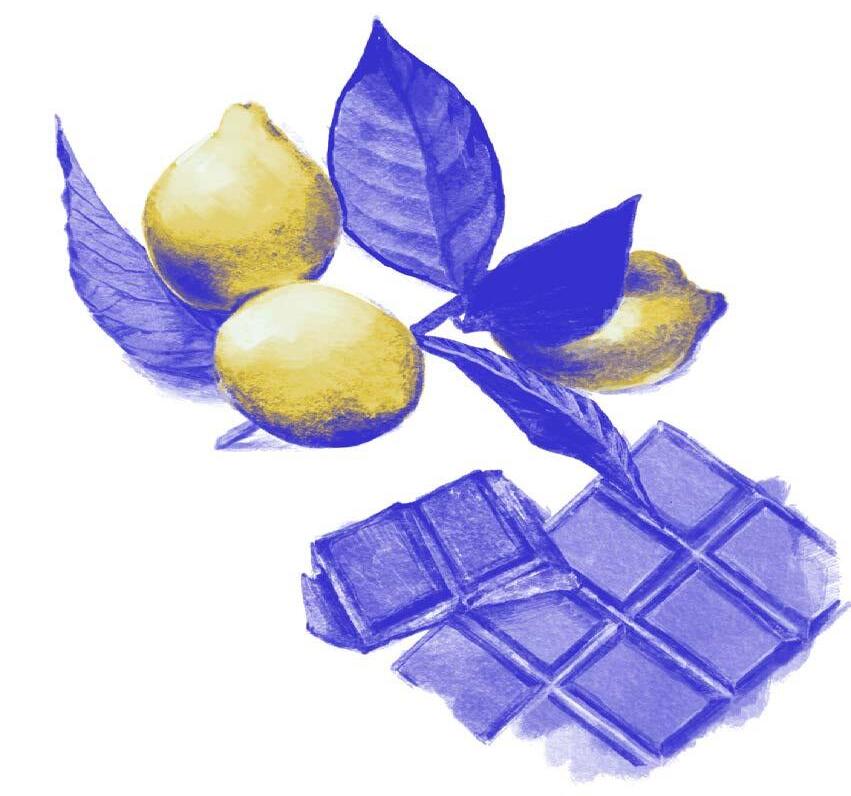
My grandfather was nothing short of incredible. Last year, Nonno Franco passed away at 91 after a long battle with dementia. The neurodegenerative condition is recognised as the second most common cause of death by Dementia Australia, making this an extremely sad reality for many people and their loved ones. I do not want this piece to be a sad story.
Growing up, I could be sure of a few things when visiting my grandparents in the northern Melbourne suburb of Fawkner. A step through the door would find my Nonna Angiolina preparing to fill my belly with a delicious feast and my heart with unconditional love. Nonno would be dressed in a chesty singlet and short shorts, attending to his abundant vegetable patch and doing his best to make you laugh. A match made in wog heaven.
A few years after we lost my nonna, Franco was diagnosed with dementia. These first few years were the hardest. A social man and a great orator, he slowly withdrew into himself. I watched as his confidence in doing basic tasks rapidly declined. Anxiety towards social situations developed so much that he would become physically sick and not be able to leave the house.
It took a village to keep him in his beloved home. Cousins, nephews, nieces, grandkids, and friends rallied
to support my mum and her sister by bringing Franco meals and keeping him company. In these visits, the house felt oppressively silent. Nonno would seldom eat the pasta that he used to love and, worst of all, the vegetable patch was in decline.
I watched as an intelligent man slowly forgot the skills of harvest that were once second nature to him. Growing up on a farm on the Italian island of Elba, growing crops was the means of survival for a young Franco, who lost his mother as a small child. At 24, after traveling across the world by boat with his two brothers and their wives, the garden became a connection to home, and a love letter to his family and friends.
As the community of Italians who arrived in Melbourne in the 1950s slowly dwindled, the garden and food became all the more important,
and a way for Franco to fill his days. But growing fresh produce is an art that requires knowledge, attention and functioning memory — all the things that Nonno was losing. I felt despair watching him confuse weeds for herbs, pull plants from the ground well before their time, and forget the names of fruits and vegetables he’d been growing for over eight decades.
Yet, despite his growing confusion in the garden, the citrus trees continued to grow and, over time, parts of Nonno’s personality began to bear fruit again. In these final years, elements of Franco that I had long grieved began to reemerge. He started opening the door again with the hallmark enthusiasm that had fallen victim to anxiety. Nights by the dinner table were suddenly filled with
spontaneous singing and dancing.
Most precious were the new stories that floated out from the recesses of his mind, accessed by the strange developments of dementia. For a man who had been reduced to a few limited conversation topics, it was a wonderful surprise to unearth anecdotes from his youth that were completely fresh to me. Some were true, and I’m sure some fabricated, but I relished in the commitment to storytelling that I had missed. Even with an almost empty fridge and a shrinking garden offering, he’d be sure to saddle me up with an overflowing basket of lemons (this was non-negotiable), a block of hazelnut chocolate, and a story that gave me a new piece of him.
The last time I spoke to Nonno was on a Thursday evening in June. He had been in hospital, and then a nursing home, for almost two weeks and was rapidly losing consciousness. But when I came into the room he opened his eyes to look at me, and bore the widest, most generous smile. It was one I’d seen a thousand times before, closing and opening the door to Fawkner. He gestured to me to come closer, grasping my face between his gentle hands. His language was gone, but the connection was still there. Without saying it, I knew he was insisting that I take some lemons, one last time.
Art by Long Huynh
Perspective 15
Will Thorpe reflects on how our politics evolve.
Elliot Lawry remembers his nonno.
Art by Sofia Angelini and Ella WaltersAdams
The Tiger in the Room
Infections started piling up. The hospital visits weren’t just visits anymore. Days in a hospital bed started to move into weeks. I became familiar with the ICU as more than just the place where my mum worked. For six years, my dad was unavailable for six hours on Mondays, Wednesdays and Fridays, undergoing dialysis so he could stay alive — which came with its own complications.
I’ve never had a nightmare quite like that again. Maybe because my subconscious fear of losing my dad became more real. He’d been a renal patient all my life. The big scar across the side of his stomach was nothing out of the ordinary. Neither were the bedside tables filled with medication bottles and strips with big “KEEP OUT OF REACH OF CHILDREN” signs embossed onto the labels, or piles of prescription scripts, or consistent hospital visits. They just contributed to facts I could tick off a list: the sky was blue, the grass was green, Appa had had a kidney transplant so I had to be careful. It wasn’t a big deal to me, back then. Until the reality of it all kicked in.
Another time, a random family friend showed me a photo he took of my dad during one of his worse hospital stays. I hadn’t been allowed to visit then. It was probably just hospital policy, but maybe Amma didn’t want me to see Appa like that. Eyes closed, skin sallow, with tubes sticking out of him, connected to machines that were more or less keeping him alive. Almost a decade later, I’ve never quite been able to shake off the image, or the visceral combination of feeling rage and sadness and helplessness, all at once.
I hadn’t wanted to see it, but I was shown it anyway. I didn’t want to face it, but it was there anyway. To stay. It was easier for me to ignore the tiger in the room. Because it’s hard to reconcile as a twelve-year-old that there’s a chance your dad will miss your next birthday too, and the ones after that. Because every time Appa got admitted to hospital, it was the same cycle. The worry, followed by anger I couldn’t place, followed by frustration that would turn into unbearable sadness that involved crying myself to sleep, writing eulogies in my head, thinking about funerals. But then, Appa would come home and it’d be okay again, for a while. The anger and sadness and frustration would subside. I could tuck my grief into boxes and stuff it into my wardrobe along with the clothes I never wore. Because it doesn’t really make sense, does it? Grieving for someone who is still alive. I constantly ask myself: Why am I grieving for

something that hasn’t happened yet? Why am I constantly preparing myself for the worst?
Sandra Kallarakkal grapples with what the future holds. Once, around the age of eight, I had a vivid dream about my dad getting eaten by a tiger. We were in India, in the back-garden forest of the house I grew up in. I heard it first. And immediately, I was off — running and running and running before I saw the scene. It was too late. I tripped and fell onto the dirt earth and the next thing I remember is waking up crying, heaving, chest-tight-hyperventilating. I recall tiptoeing to my parents room and waiting in the doorway, checking they were both there, listening for the tell-tale signs of breathing. Upon finding them safe, I returned to bed and dozed off again until I was woken up for school.
The whiplash of this preemptive grief is exhausting. A constant dressrehearsal for a show that has no clear closing day. A tiger watching from the shadows, waiting for the moment I’m distracted to strike. I know it’s something I have no choice but to live with. I know my dad will never “get better”. I know everyone dies one day. However, coming to terms with it all never stops being hard. The fear is hard to contain because I know it’s coming sooner than later. There’s no happy ending here, no matter how hard I hope and pray and wish for it. This isn’t a dream I can wake up from.
Appa occasionally tells me that he’s survived this long because we moved to Australia. Sometimes Amma will join in and speak in agreement, mentioning finances and hospital bills and resources and how lucky we are to be able to access the mostly free healthcare here. I don’t argue. They’ve always been better than me at finding the silver linings. Maybe it’s true. Maybe I lied. Maybe there is a happy ending, and it’s that the tiger is still prowling.
But the fear is still there. I continue to wait for it to pounce.
Art by Caitlin White
From Stars to Stories: How did we get here?
Just as light pollution has obscured our view of stars and the beauty of the night sky, our busy lives and preoccupations can often blind us to the awe-inspiring realisation that we have come all this way from stars to histories and stories in the making.
Contemplating this fact often saves me from crushing anxiety from the stress of every-day life and activities. I realise how I am more than just the current moment — I am a product of uncountable coincidences.
Start with your parents and try taking the power of two up by two at a time and then you’ll know about what I’m talking about. Now imagine if even one of your great-grandparents had not happened to be at the exact place and time as the other when they met. What are the chances you, in your current form, would come to be?
Billions of years ago, in the fiery aftermath of the Big Bang, the universe was a cauldron of cosmic chaos. In this seething inferno, hydrogen and helium atoms formed, combining in the crucible of gravity to create the first stars (three of these have been spotted earlier this year). It is funny to think of time as distance — like this tightrope stretching into infinity with historical events as points that comprise it.
Heavier elements would go on to form within these blazing cores as stellar nucleosynthesis would proceed. Hydrogen atoms would go on to form helium to create beryllium and so on. Among these would be carbon — the star of the show that is our cosmological history.
Gas and dust in the interstellar medium began to collapse under their own gravitational pull, forming new stars and planetary systems. Within these stellar nurseries, carbon atoms bonded together in the fiery cauldron of protostellar disks, forming the building blocks of planets — including
with latent technology — fire led to the discovery of its uses, leading to the development of cooking, tool-making, and eventually, the mastery of fire, which propelled the advancement of civilization. The discovery of metals and their properties, serendipitous encounters with natural resources, and the spread of knowledge through cultural exchanges and trade routes all played a role in shaping human history.
my favourite and our home — Earth. In the primordial soup of the early oceans, versatile carbon with their quadruple ring structure would open possibilities to create complex life. From simple single-celled organisms to the dazzling diversity of life forms that exist today, carbon is a fundamental component of all living organisms, providing the structural framework for the complexity of life. The chance encounter of early human ancestors
Inventions like the printing press, penicillin, and electricity were the results of unexpected accidents or coincidences that transformed human civilization. The chance meeting of important figures or the occurrence of unexpected events often changed the course of politics, wars, and revolutions, shaping the rise and fall of empires and civilizations.
A few years ago, I would not have believed that I would be sitting here in Australia, studying the course of my dreams and learning to be completely independent in a foreign country. It is even harder to imagine how my
ancestors would have reacted to this. Even as recently as six decades ago, the thought of crossing borders would draw severe condemnation from all quarters. My grandfather, K.P. Gupta, a professor of chemical engineering, secured a scholarship in the late 60s to go to the United States and work under Don Othmer, one of the founding founders of modern chemistry. When he returned after 10 years having toured half the world, the entire village gathered to decide whether he would be excommunicated as he had just crossed the seven seas. Even he would have found it hard to imagine that, from the future generations, a girl would be the first to lead the family into uncharted territories.
That is the furthest thought from my mind when I return home these days. All I receive is the love and warmth of my family and people, who now see the opportunity to study abroad as extremely valuable.
The role of chance events, from the Big Bang, to the atomic versatility of carbon spawning life, to random coincidences has been significant in shaping the journey of life on Earth. Reflecting on our existence we are reminded of the unpredictability and serendipity that have influenced human history and the awe-inspiring complexity of the universe.
Perspective 16
Vanshika Singhgupta gazes at the stars.
Inventions like the printing press, penicillin, and electricity were the results of unexpected accidents or coincidences that transformed human civilization.
The love we have known
An old lamp sits on the desk of my childhood bedroom. Its oval shaped head spilled weak white light over the countless essays, artworks, and books I passed under it over the years I used it. It was given to me by a childhood friend – her name was Nayoung, but my teacher called her Jenny. She gave me the lamp because she could not take it back to South Korea with her, and ever since, it has stayed in my room, Korean plug connected to an Australian adapter, bowing its head over my desk. I haven’t spoken to Nayoung in years.
Before my grandfather died, he held my hand and told me he loved me. Through stuttered sobs, I thanked him for being a good grandad. He snorted; “I haven’t done much.” I said that he
had, trying to articulate through my running nose and gasping breath how much he had done for me, but in the moment, I couldn’t.
My friend Stella and I used to go to art classes together. We both loved to draw, and would doodle on scraps of paper in class. I used to copy the way she drew eyes. I can’t remember if she was bothered or not — or if she even knew — but I remembered thinking her drawings were cool and wishing mine were the same. As I grew older, and time pushed us apart, I kept drawing eyes the way she had, improving bit by bit with each one. I paint portraits now and in each stroke are years of muscle memory. Under layers of paint are the same eyes that she used to draw.
What I told my grandfather is that, just the day before, I had borrowed shoe glue from my dad. I asked for it to fix a pair of sandals which were falling apart. My dad has an ice cream tub full of different tubes of glue that he keeps in the garage, each of which are optimised for different uses. Shoe glue is different from normal glue, because it allows for more flexibility of the repaired bond, so your fixed shoe won’t fall apart again with the movement of your foot. I know this because my dad
has helped me fix many shoes in the past — ever since I was young, he has helped me mend, rather than replace, broken things. He tells me he learnt that from his dad.
I told my grandfather this, and he laughed. I’m not sure that he understood what I was saying. I wish I had said it better.
I catch myself slipping into my boyfriend’s syntax. Our message exchanges sometimes just look like echoes. I love the way he uses words; I envy his efficiency. I have screenshots from years ago of things he has said that remind me I am loved, but I don’t look at them often. I remember them as I might a poem.
When I make comfort food, I add butter to my rice. It makes it taste almost like it does when my best friend cooks rice with ghee. Her rice is always better than mine.
I have a scar on my ankle from a time I sat by a fire pit with friends, trading stories, too engrossed to notice an ember had jumped out of the flames and into my boot, burning a little crescent into my skin.
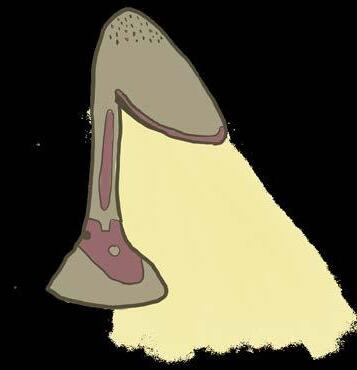
I wish I had told him that he had done more than I had words for. That when I was travelling, I obsessively
photographed every meal we ate in preparation for a slideshow I would show my family, the way he used to make slideshows of his journeys that he showed me as a kid. That when I solved tricky clues in the Sydney Morning Herald crossword, my dad would praise me by comparing me to him. That my dad walks the same way he does, arms clasped behind their backs, steps slow and deliberate. That I see his thumbprints indented all over the moulded clay of my family.
I know the words to a song I have never heard because my friend used to sing it over and over during Year Ten science class while we were meant to be doing work. Over coffee, I share again and again a fun fact a friend told me about how it’s not the material of a mug that keeps your drink warm, but rather, the shape. I sleep with a blanket my aunt knitted me.
We are all just constellations of the love we have known.
The last thing my grandpa said to me was that we would see each other again. I have seen him ever since.
Art by Caitlin White
Letting go of what no longer fits: How I came to adapt to chronic illness
In February 2022, I was a university student and a part-time medical receptionist at my local general practice. I hadn’t selected my majors yet because I was so unsure of what I’d like to do with my degrees in the future, so I chose to take as many different electives as I could over that year of my study. After finishing my study for the day or my shift at work, I’d use the remainder of my energy to exercise and socialise. Things were so sweetly simple, and I had no idea how my life and my identity would transform in the coming months.
I am being treated for a suspected autoimmune condition by my rheumatologist, who trials me on various medications to help with the joint pain I’ve been experiencing over the last year. It’s been uncomfortable — but not so bad that I’d have to cut back from my work or study. A few weeks after beginning a new medication, I experience a throbbing, pulsating sensation along with nausea at the back of my head whenever I clean or exercise: what I gather after a few days of consistent symptoms to be a migraine. I wait for it to subside, but it seems to be ongoing. After some weeks of research into the stories and advocacy of patients with a variety of different health conditions ranging from iron deficiency to ever more serious and life-threatening diseases like cancer, I see that sometimes in medicine this is what happens: you try
to treat one problem, and you end up with another. There is so much about pharmacological interventions and their interplay with our bodies, all so unique, that we still don’t know. My general practitioner told me it was hard to say what caused my migraine given it persisted after ceasing the medication I was trialled on, but there are certainly a few likely possibilities.
Simar Batra looks back at the last year.
thinking straight and communicating, and eventually I need to throw up.
It’s after that point that I realise I had just had my first disabling migraine attack. Along with the stress I’d been experiencing and the general sensory overload of modern life, the MSG was the cherry on top that pushed my neurochemistry over the edge: resulting in debilitating physical pain and other excruciating symptoms. I’m able to discern this after doing some research on migraine “triggers”: which include light, sound, certain foods, high-impact exercise, and stress among various other things. I realised that my migraine was likely not going to subside on its own, and I would need to begin seeking treatment from a specialist.
than myself. Instead of spending my days reckoning with my seemingly ever-increasing fatigue, I find hope in the stories of many people who have also been through the same thing. I note that complaining does not make me feel better, and getting on with life with acceptance for my limitations is what does.
A few weeks later, I’m picking up some Korean fried chicken from a nearby store — comfort food. I’d bottled up a mosaic of emotions over the last week: frustration, confusion, disappointment in my healthcare providers and myself. Instead of dealing with them sagaciously, with something like exercise or journaling, I decide to gorge myself on the entire box, something I don’t think I would’ve been able to do even if I was actually hungry. Within fifteen minutes, I begin to experience the most intense nausea I’ve ever had along with head pain side by side. I’m having trouble
After speaking with my neurologist and spending a few months in this physical state, the gravity of my symptoms, mental, emotional and physical, begins dawning on me, and after some time I come to an awareness of the fact that I feel too weak to carry it on my own. I talk about my experience at length with my boyfriend, and whilst he reassures me, I still walk away from the experience feeling isolated. A few months later, when we break up, I decide to quit my job to focus entirely on university and conserving my energy levels. I join patient advocacy groups online, and begin to feel part of a community and something bigger
It’s been a year since then, and with treatment, I have improved to an adequate level of functionality. I used to, and sometimes still do wonder whether I’d grown up too quickly through this experience, whether old friends would struggle to have conversations with me because we had less in common. I sleep early and am increasingly selective about how I spend my time. My daily routine is simpler, and my circle is much smaller. Even my mornings are slow, and I spend most of my time working, studying, exercising, reading, resting. There isn’t much alcohol or partying, but somehow I don’t feel as much need for it.
I wouldn’t go so far as to call illness or enduring suffering themselves gifts, but I would say that the gratitude, appreciation and increased regard for the pleasantries in life most certainly are. Whilst I clung to my pre-illness identity for the better part of two years for comfort, I found that letting go of it with grace is what brought me the most peace.
Perspective 17
Nicola Brayan traces her connections.
Sometimes in medicine this is what happens: you try to treat one problem, and you end up with another.
The things you learn along the way...
I’ve never been very good at endings. At saying thank you, at saying goodbye, at having to walk away when you know that there are still things you haven’t said — whether it was out of awkwardness, or a sense that I didn’t know how to say what I had wanted to.
Each time that a term, semester or year winds up, I would feel the onset of the panic and I’d end up stuck. Often, I have not been able to explain how much I have appreciated a gesture, or thank those who I feel were instrumental to it.
dominant hand. The combination of a mid-week work trip and notably knotty hair left me unable to tie up my hair for school — or at least unable to without starting the day in tears from the process of detangling. My final Year Five teacher had offered for me to pop up to the classroom before class started, and she would tie it up for me. She did it each morning when I needed it. I still remember her kindness.
Veronica Lenard is trying to say thank you.
everything was infuriatingly slow. This meant that I would frequently finish tasks too quickly for what the teacher had planned. My Year Seven science teacher noticed this and started preparing additional tasks, experiments or challenges for students who finished early. I remember my friend and I at the back of the class learning to magnetise objects. We both loved and continued to love science. I don’t think this is a coincidence.
on their etymology. Out of a year worth of words-of-the-day, I remember the handful of words that I’d never encountered or couldn’t guess. I can still picture the way that she would revel in that moment. I honestly don’t know if I owe her an apology or a thank you, but I certainly remember my English classes from that year.
This seems odd for a person who talks so much. I know that I talk a lot. I’ve been told this practically my whole life. It didn’t always start this way. My mum once told me that my garbled speech concerned her enough to ask at daycare whether they thought I might have a speech issue. They explained that instead it seemed like I was thinking too fast for my little mouth to keep up. I’ve spent the rest of my life trying to work faster, trying to keep up with my thoughts. And getting stuck in the gap in between, when I can’t.
I feel a great debt to the teachers that have taught me over the years. I know the ways that I’ve thrived in carefully cultivated classroom environments. I know how much I’ve appreciated being able to exist in these spaces. I’ve never really been able to tell them what this meant to me.
I started school with teachers who enthralled us with stories of paperbag princesses, reward lists that involved them rolling down a hill or letting us be the teacher for the rest of class, and comforted me as I clumsily found myself accidentally slamming my fingers in the door trying to get back to my desk too quickly. I still remember the effort that they invested.
My Year Four teacher decided that every time we cleaned up, we would listen to the song “How Does She Know?” from Enchanted. I don’t know why he had picked this song. Maybe he explained it to us, and maybe it slipped my mind. Maybe we accepted it, not needing to question it. We would wander around the room no longer daunted by the previously boring task, as it was easier to bop to a dancing princess wandering her way through Central Park. I could still quote you the lyrics. I still remember the joy he cultivated in our classroom.
I had four Year Five teachers. That is a weird amount of teachers to have in one year, but between a move between schools and two teachers at each, it was a little chaotic. Amidst this, I ended up with my arm in a cast for about a term. A word of warning: don’t try to stop a slamming door from closing if it has a panel of glass in it. Things were harder to do with no use of my
The move left a somewhat wary eleven-year-old wandering down new halls wondering about how she didn’t know anyone. As we walked down the hallway, out walked a familiar face as if out of nowhere. It turned out that a teacher from my old school — the one who had had me when I accidentally caught my finger in the door — had moved to this school before I had. She stopped to speak to me about things about my old school and what was about to be my new school. I still remember how this conversation put me at ease. I could make this change.
Her classroom felt like a place where I could just exist.
He would later briefly accuse me of stealing my paddle pop stick from the name jar (a way to pick who would answer questions), but a reminder that did it seem in character for me — a person who would constantly try to answer questions in class — to make it harder for myself to talk resolved this quickly. I still remember a check-in on a day that I hadn’t been talking so much, just to make sure that I was okay.
My Year Six teacher loved owls. I also love owls. I don’t remember if I did before Year Six, but I know that I’ve loved them a whole lot more ever since. On our Canberra excursion, I remember standing in the middle of the Sportex exhibit in the Australian Institute of Sport. I had an excruciating headache, and was on the verge of tears. I knew I was about to cry. I burst into tears. She took me outside and we sat down on a couch in the corridor. As we sat there, she showed me pictures of owls and ducklings on her phone until I calmed down. Her plan had worked, and I was sufficiently distracted to make it through the rest of the day. I still remember the care she showed me — and the owls. As I look around at the owls peppered around my room, I can still see her influence.
I began high school as a nerd (in case you were wondering, I also finished high school as a nerd). A nerd who had been told her whole schooling life to slow down and not rush so much. However, it was the only speed I could work at, otherwise
Talking a lot in class became a bit of a pattern for me. I still remember an awkward moment during the parentteacher interview with an English teacher where my mum had just been told that I didn’t talk in class in Geography (somehow the only class where this was an issue). My mum decided to ask my English teacher if I talked enough in class. For context, this teacher had already dealt with me during book club and this class, so knew how chatty I was. I remember the shock on his face that I was the child that this question was being asked about.
He encouraged us to question what he was saying. That just because he was the teacher, it didn’t mean he was right. Somehow, this didn’t extend to me checking his translations on phrases in a book we were reading, which was met with, “You don’t need to fact check that Veronica.” And even then, I semifrequently proclaim that the reason that someone doesn’t demonstrate critical thinking is because they didn’t have a teacher like him.
Another of my English teachers would begin each lesson with a word of the day. Much to her annoyance, she soon discovered that I already knew many of these words or could hazard a decent guess at their meaning based
My Year Eleven maths teacher once told me that I had panicky eyes. In her defence, she told me that because midway through her explanation of what we would study next year. I somehow communicated so much panic, that she felt the need to say that I didn’t need to look so worried. I had protested that I was leaning my face in my palm, so the only part of my face visible was my eyes. She explained that was enough to communicate the panic, no matter what else was happening, her classroom felt like a place where I could just exist. This meant more to me than I could at the time express — or could even do so now. I still remember one class where she had offhandedly mentioned to my friend that they should ask me, after class, how I was going. My friend was confused but I felt seen. I appreciated the gesture.
I learnt so much in Ancient History and so much has stuck with me — even if it means that I also am stuck with facts about market gardens in Pompeii, funerary reliefs in Sparta and administrative officers in Ancient Egypt. I once accidentally (probably) insulted a friend in the class, during a moment where, in my defence, I was really really tired (it was Year Twelve, you know?). As I spluttered apologies about saying stupid things when I am tired, he seamlessly moved the conversation on claiming that he said stupid things even when he wasn’t tired.

I don’t know if my teachers meant to teach me these things.
I’ve always enjoyed being in a classroom. I’ve been lucky to have teachers that created these kinds of spaces. It obviously isn’t possible to mention all my teachers or moments in class, so there are many other things that I’ve learnt along the way that were not mentioned in this piece, but I trust that those involved in them know who they are. I’ve kept these things with me and will continue to do so. I don’t know if my teachers meant to teach me these things. Perhaps, it was their intention all along. Perhaps, it was a happy accident. Either way, I know that I wouldn’t be the person that I am without their influence.
I still wish I was better at saying thank you. I’ve tried resorting to crocheting something as a distraction from the words I couldn’t find. Maybe it’s time to look for the words again. This is me trying.
Perspective 18
I’ve spent the rest of my life trying to work faster, trying to keep up with my thoughts.
As I look around at the owls peppered around my room, I can still see her influence.
SUDS’ Nowhere Fast (Yes, it refers to The Smiths’ song)

Walking into Nowhere Fast —with its tagline: “The insecure alpha male. The hysterical office slut. The unhinged incel. The cool girl” — you know you are about to witness a hectic dynamic.
It is important to firstly note how admirable it is for Rose Cooke’s vision to have survived from her HSC days and culminated in the combined efforts of producer and dramaturg Aqsa Suryana, and co-producer Alexis Nguyen. It really made me appreciate how they confronted gender archetypes in and beyond the workplace. I was sitting near the brains behind the show and it enhanced my viewing experience hearing their laughter and pride over this production.
The set design is reminiscent of an American cubicle office, however it was markedly Australian; SUDS archive binders as props and tacky office chairs that no one finds comfortable. Let’s not forget the desktop computers, resident pot plant and cute kitchenette area with Smiths’ chips. Get it? One criticism I have is that the meerkatlooking toy on the desk gave me traumatic memories of the infinite
Compare the Market advertisements. There are continuous strobing lights in this show for the function of adding to the high stakes. Yet, the eerie music did most of the captivating and contributed to a “Twilight Zone’atmosphere. While both added needed intensity to the play, they also became repetitive and jarring after a few repeats.
Nevertheless I was drawn into the blurring of the personal and workplace relations. There were multiple pieces of dialogue that I wanted to memorise and put in my pocket. They captured many observations about the way the world revolves around who wields power and resources — in this case, represented by the keys to the office. Additionally, the offstage action was every bit as intense as the onstage scenes.
I never thought I would be saying that the incel character — from hereon known as Ed the incel — was the standout. Perfectly played by Felix Tonkin, his whole burn-book agenda is so petty but is befitting of this rapidly spreading subculture.
He takes everything up a notch with his extremist views and actions. He is vulnerable but not to the point of sympathy as it is obvious that his own behaviour leads to disastrous outcomes.
Joan is the embodiment of “I’m not like other girls but I know and own it.” Ruby Lewis-Millar does a great job at communicating the nuances of this constructed facade but also delivers fantastic deadpan reactions. It reminded me of Margot from last year’s The Menu, and her consistent sarcasm.
Michael Sebastian’s Adam repetitively unravels in front of our eyes. While in many instances Adam carries many privileges -- notably from going to Knox Grammar -- the intersectionality of race and his life as a second generation immigrant added complex commentary to the power hierarchy. No one is excluded from exploiting their entitlements - whether earned or inherited.
As for Jadzia Stronell’s Sharon, she appears to be a stereotypically shallow woman who takes advantage of her
looks. However, there was a seamless subversion of that archetype in which she takes charge and also pitches in to protect the sisterhood. It was very heartening to see it depicted and not glossed over.
I also appreciated the characters doing seemingly mundane things like playing around with desk accessories while nervous or bored or waiting for someone to save them. For example, the men eating snacks in a time of crisis whilst the females were holding their phones for signals presented a clever dichotomy and running gag.
And boy, was I glad for some reverse mansplaining from Joan to Ed the Incel. Especially that men get more of a free pass in life. This exchange delivered much needed catharsis, and is probably what Don’t Worry Darling tried to achieve.
Cooke specifically said the play “exists outside myself” and almost “created itself”. No, Rose, you did -- and now many people can go see it until 28 April at the Cellar Theatre.
The Overture & The Underscore by Sarah Blasko
Songs played at Mum’s funeral:
“O Mio Babbino Caro” — Puccini (performed by Yvonne Kenny)
“Into My Arms” — Nick Cave & The Bad Seeds
“My Girl Lollypop” — Bad Manners
“Flame Trees” — Sarah Blasko
“Protons, Neutrons, Electrons” — The Cat Empire
My mother had a piece of cut glass in the shape of a half moon that hung from the rear vision mirror in her car. When she passed away, I put it in my car, where it has hung for thirteen years. I’m surrounded by the ephemera of her life. I have an old brooch pinned to my denim jacket, I put a new leather band on her old watch, and even my cursive handwriting loops and curls in ways reminiscent of hers.
While she was alive, Mum and my taste in music never matched, but over the past thirteen years they’ve converged. I would have loved to have heard her opinion on the brand new album from boygenius, or countless others in the preceding years. Instead, I decided this week to relisten to The Overture & The Underscore by Sarah Blasko. It’s an album that she loved, and one that has never been released on vinyl either.
Ian Moss of Cold Chisel wrote, “Who needs that sentimental bullshit, anyway?/ You know it takes more than just a memory to make me cry”.
Blasko’s cover of “Flame Trees” was never on the CD version of her album, but was added onto the Spotify release as the last track. It’s sparse, melancholic and beautiful, much more in line with the way Moss imagined the song than
the way Jimmy Barnes sang it. The lyrics are a lie too; memories do make you cry. I cried a lot re-listening to this album, but it was cathartic and lovely.
Listening to the whole thing through for the first time in forever, I couldn’t help but think that Blasko’s career came twenty years early. “Don’t U Eva” is an excellent song for instance, and would shoot to the top of any curated Spotify playlist of contemplative indie music if it was released today. I think that would make my Mum really happy.
Driving home today the half moon crystal jerked on its thread and broke. It was in bad shape; years of driving over speed bumps had seen a few chips taken out of it as it collided with the windscreen. This time the crack was in the wrong spot and it’s beyond repair. I was sad at first but the more I think about it, the more I think it suits where I am with my grief now. When you clutter up your life with such transient, fragile things as cut glass, there’s no room to move or grow into anything else. I love my Mum and I always will — with or without a pretty piece of glass.
That’s why music is so important. The flotsam and jetsam of a life cut short can tell you a little bit about a person, but the books they read, the food they ate, the music they listened to shines a light on who they were. Sarah Blasko has had a long and successful Australian career, so it’s a wonder that she hasn’t released this album on vinyl just yet. She probably will. The 20th anniversary is next year, and it wouldn’t surprise me if a coloured vinyl with all the bells and whistles is released. Decluttering my life is an act of healing, but to have a copy of this album would be great too.
Reviews 19
Valerie Chidiac goes to see a play.
Lachlan Buller listens to an album with a box of tissues ready.
General Secretaries
TIGER PERKINS JASMINE DONNELLY
It has been a busy three weeks since our last Honi report. We attended the first Faculty Society Committee meeting of the year, where various student presidents could register their concerns with the SRC to help us better coordinate in fighting for student interests on campus. Of major concern across the board was class sizes, which are continuing to grow, having a severe impact on the quality of education we receive. We assisted Lia and the SRC Caseworkers in making a submission to the government on their Universities Accord. Our submission highlighted the need for free education, the abolition of student debt, the demilitarisation of unis and their disentanglement from fossil fuels and weapons manufacturers. We have begun meeting to discuss contestable
Vice Presidents
DANIEL BOWRON ROSE DONNELLY
We hope you enjoyed your mid sem break and could catch up on your lectures (don’t even ask us how far behind we are)! It has been a busy few weeks, so here are the most important recent developments. We recently chaired a meeting of the SRC Faculty Societies committee, with Presidents of a wide range of faculty societies attending for a discussion of each of our plans and how we can best tackle current and
Welfare
ELEANOR DOUGLAS ELLA HAID HARRISON BRENNAN FELIX TONKIN
With the election of the Labor Party to the NSW state government, some would assume that the welfare of the state could soon improve. However, we must remain sceptical. The plethora of promises they have taken into the election fail students and workers in a myriad of ways. Among them, their solutions to fix the housing crisis are shockingly inadequate. Intending on merging bureaucratic bodies together to create Homes NSW and their focus on increasing the supply of homes in the state will not be enough to fix the rental crisis and the demolitions of public homes in Glebe and Waterloo. Read the Honi Article
funding, which we receive from the uni for one-off or continuing projects that aren’t covered by our annual SSAF allocation. As Rad Ed Week is funded by this contestable money, rather than our base funding, we have postponed it until sem 2. In attending a Uni Exec Education meeting last week it became clear that the uni is trying to move away from 5-day simple extensions in favour of 3-day ones, despite our strong protestations. As we have heard nothing but positive feedback from students since the SRC secured these extensions last year, we quickly put together a survey to evidence our case, which has amassed 650+ responses in the first 48 hours, almost unanimously wishing to maintain the current length. We will keep you up to date on this. In more disappointing news, the staff strikes look to be wrapping up without securing all the demands in the NTEU’s log of claims. Although the current offer is an improvement on management’s original, with concessions won only through the nine days of strike action, workers deserve all of their entirely reasonable demands.
future student issues. It was great to have such a productive chat with student representatives from so many disciplines, and we hope to hold these meetings regularly to stay connected. The promised expansion for Foodhub is happening too! We have recently had period product dispensers installed and are ordering more food than ever before to meet increasing demand. With almost 1,000 visits this year, it’s clear that students are being squeezed to the limit in this economic climate. We will continue to draw attention to this through the year and hope that other student representatives do what they can to achieve tangible results for students in this regard. Good luck with the semester and see you next time!
“Flatline over Flatmates”, written by Welfare Officer Harrison Brennan and Student Housing Officer Jordan Anderson.
I want to flag a few key events coming up in the next few weeks.
1. May Day March - Celebrate the international working class movement on Monday the 1st of May at 11am in Belmore Park.
2. Disrupt Budget Week! - Tuesday the 9th of May at 12pm in Canberra. To get involved please contact welfare.officers@src.usyd.edu.au.
3. Protest Labor’s Budget for the Rich! - Friday the 19th of May 5:30 at Town Hall.
On a final note, the Welfare Action Group is currently organising an action scheduled for Week 11. We encourage you to join or follow our Facebook page and keep updated on the event. It’ll be a creative stunt that all students can enjoy.
President LIA
PERKINS
Hey! Here’s what I’ve been up to and what’s coming up! The most significant news I shared with you was that the University wishes to overturn the trial of 5-day simple extensions, and make them 3-day simple extensions. From our initial discussions with students, we have heard that this would cause unnecessary stress and further sharpen the gap between students from disadvantaged backgrounds face. The SRC and SUPRA are running a survey to find out what you think, and have received hundreds of responses. I will share these findings to demonstrate what students think about the system, and it would be a real shame if the University ignore this. It is disappointing to see the Labor Government oppose a bill to freeze Hecs indexation, which will significantly increase Hecs debts, and plunge our generation further into a spiral of debt. Students need urgent action to ease the cost of living, as well as a University system not structured around fees. I attended the Vigil outside Randwick Town
Indigenous BENJAMIN MCGRORY
Hiya Mob, Benjamin here your First Nations Officer for 2023. During April I have worked with the SRC and Gadigal Centre to advance on the following: Made a submission to the Parliamentary Inquiry on the Voice Referendum legislation. We are the only student advocacy body who made a submission (as of 3:50pm 21/04/2023). The Voice is only one part of Voice, Treaty and Truth outlined in the Uluru Statement from the Heart. We need the Voice to reclaim our platform in demanding Treaty with Traditional Owners in each state and territory. We need the Canberra bubble and Executive to listen to Indigenous community lead solutions and that can only be achieved by having Mob at the table. We cannot let the CLP / LNP wreck our fight for Voice, Treaty and Truth. The SRC will always fight racism and
Hall, standing with the Australian Palestinian Advocacy Network and the community to tell councillors not to fly the Israeli flag. Unfortunately the council ignored our wishes and went ahead without considering the urgency motion. Next week! On Thursday the Enviro Collective and Education Action Group are holding a rally,‘No to War and Fossil Fuels: Thales and Santos Off Campus’. In the light of the AUKUS deal, we believe it is increasingly important Universities have no ties to weapons manufacturing, and that current connections and partnerships to companies such as Thales are completely dropped. On Thursday evening the Women’s Collective is hosting a round table, ‘Abolish the Colleges, Build Public Housing Now’ to address the unsafe, elite nature of the colleges and demand a student housing system which is safe and affordable. If you’re interested in the topic, please attend! It was sorry news to hear that the week 10 strikes have been called off, because the strikes so far in this campaign have been extremely successful guaranteeing a better pay rise and maintaining 40/40/20 conditions. Staff deserve a deal that will change our University for the better, and students are completely behind this action.
be a voice for First Nations justice.
EVENTS COMING UP:

- USYD Indigenous Collective Cross Campus Drinks (Mob only)
- Friday, 28th April 2023, 5pm at the Rose Chippendale.
- Yarn and catch up with Mob from USYD and other unis
Please RSVP, via using or email me https://www.eventbrite.com.au/e/ usyd-indigenous-collective-crosscampus-drinks-tickets-621273986217
We will be doing more events with our Allies on campus as part of the revival of our Indigenous Collective!
Intl. Students
The International Students Officers did not submit a Report this week.
These pages belong to the Office Bearers of the University of Sydney Students’ Representative Council. They are not influenced, altered or otherwise changed by the Editors of Honi Soit
SRC Reports 20
ASHRIKA PARUTHI CLARE LIU LILY WEI YUCHEN LI
How to Respond to an Allegation of Academic Dishonesty
• Explain how you will make sure that you do not have academic honesty issues. For example, if you had difficulty with referencing, re-do the Academic Honesty Education Module in Canvas.
• Apologise for the inconvenience (yes, this is repeated).
What Are The Possible Outcomes?
your transcript. It will not affect your ability to do postgraduate study, and your future employers will not know about it. The only people that will know about it, are people that you choose to tell.
What to do if you Have Been Sent an Allegation of Academic Dishonesty?
If you receive an allegation of Academic Dishonesty you will be invited to a meeting to give your response. If you do not attend, they will make a decision and give a penalty without you. If you are not available for the meeting, ask for another meeting time, or give a written response to the allegation. You should be provided with:
• a clear outline of the nature of the allegation;
• all evidence relating to the allegation (e.g., your assignment with the problematic sections highlighted, or an exam incident report);
• an opportunity to respond with specific deadlines; and
• the name of the faculty’s Education Integrity Coordinator or Nominated Academic handling your case.
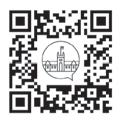
• They are not judging whether it was a good assignment, or whether you are a good person, but whether you breached the Academic Honesty rules. Be prepared to acknowledge a problem if there is one and clearly explain your circumstances. If you are distressed by this process talk to someone in the Student Counselling Service about strategies to help you manage this distress.
• If you have missed the deadline to respond, contact the Faculty immediately to ask them for an extension. If you do not respond they will make a determination without you.
What to expect at the Meeting?
The Educational Integrity Coordinator or the Nominated Academic (the decision-maker) will decide if your work constitutes plagiarism or other ‘academic dishonesty’ and if so, what penalty to apply. You can explain how you wrote the assessment, what your circumstance were at the time, and whether you plagiarised or used unauthorised materials, and they might ask you some questions to clarify details. The meeting is usually 15-30 minutes long. They should be courteous, and you should be courteous back. They will consider your answers and decide, using a balance of probability, if it is likely that you are telling the truth.
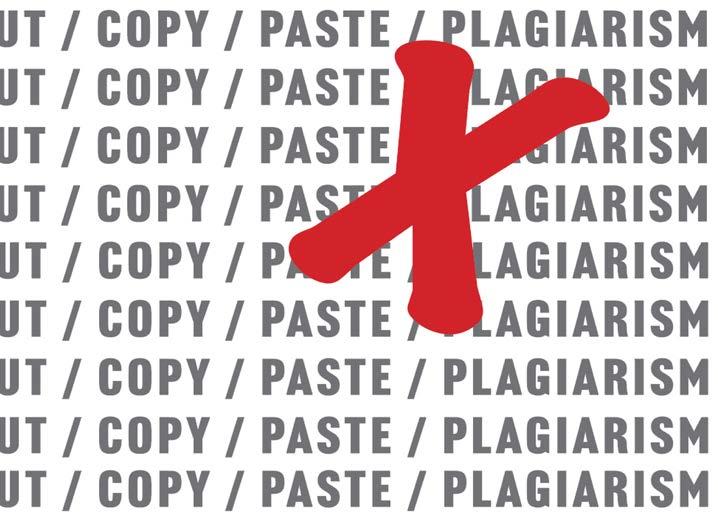
How might you respond?
• Start by apologising for the inconvenience.
• State whether you accept or deny the allegation.
• If it was an assignment, explain how you wrote it, e.g., did you copy and paste from a website, with the intention of paraphrasing it; or did you discuss the assignment with another student. If it was an exam, explain what notes or devices you had with you; what devices you had still logged into Canvas or other relevant websites or apps; and what processes you used to answer each of the questions.
• Explain any mitigating circumstances, that is, what was happening in your life at the time, e.g., busy with other assignments, worried about a family issue, feeling unwell. If possible, provide evidence to support your claims.
Recently there have been significant delays in receiving both allegations and outcomes. It may take a few weeks to get a response. They will send you their decision together with any penalty, as well as information on how to appeal. Parts 10 & 11 of the Academic Honesty Procedures 2016 outline the range of outcomes and penalties that may be applied. They might conclude that there is no impropriety, that is, you have done nothing wrong. The most common penalty given is a fail for the assignment. You will not be expelled from the University for a breach of academic honesty. Any finding of academic dishonesty will be noted in your confidential student file. Only the academic integrity team can access this file. Your future teachers cannot access that file. It will not be noted on
If your academic honesty allegation involves a file sharing or tutoring website (e.g., Chegg, coursehero, Github), the matter may be referred to the Registrar for investigation of Student Misconduct
Where You Can Get Help?
SRC caseworkers are not employed by the University and can give independent advice without judging you. Send us your draft response if you would like us to make suggested changes for you to consider.
Useful Resources
For more information on how to correctly reference an assignment redo the University Academic Honesty Education Learning Module (AHEM) on Canvas. You can also get free advice from the Learning Hub or check the library’s citation guide For help with essay writing check the Learning Hub’s online resources or book an appointment.
For the full article including links, head to: srcusyd.net.au/ src-help/caseworker-help/academic-issues/academic-honesty/
Dear Abe,
I have difficulty in reading some words and numbers – they kind of jump around the page a bit. My friend thinks I am dyslexic, and I was wanting to know if there is anything I can do about it.

Thanks Alphabet
Dear Alphabet,
The first thing to do is to speak to your GP about your options for getting a diagnosis. This will enable you to then investigate what accommodations you might need from the University. This might include a coloured lens to place over your written word, access to
assistive technology, or just some extra time to do assessments. You can also explain your situation to your lecturers and ask them what they are able to do to help you. Most of them will only do what they are instructed to do by Sydney Uni’s Inclusion and Disability Services, but there is no harm in trying. Finally, be aware of your study load and deadlines. Often doing fewer subjects will help to spend less time on those tasks, and knowing when you need to withdraw from a subject you are struggling with, will stop you from getting a fail. Please note there is a four week deadline for exam adjustments, so register as soon as you can.
Thanks Abe
If you need help from an SRC Caseworker start an enquiry on our Caseworker Contact Form: bit.ly/3YxvDUf
SRC Caseworkers 21
Abe SRC Caseworker Help Q&A Inclusion & Disability Services
Ask
Cryptic Crossword
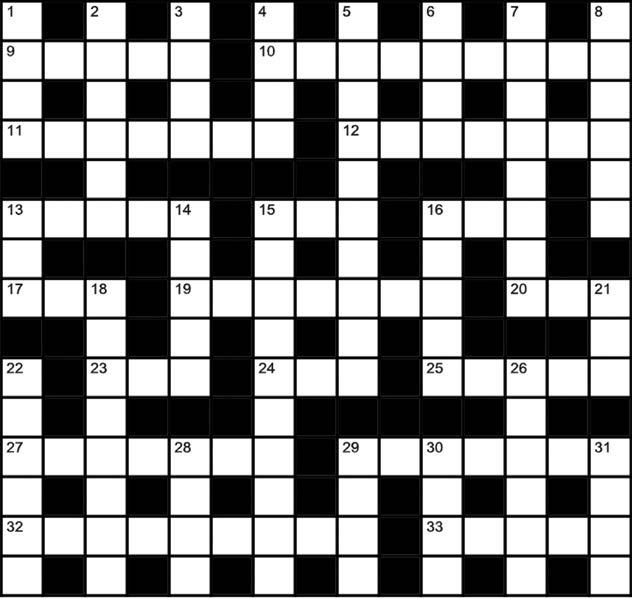

Across
1. F A M I L Y? (8,6)
10. God of Basketball a hack for some (5)
11. Charge countryfor nice crockery (4,5)
12. Snake has Kirin loses a kilo and kills pain (7)
13. Accompanying musician dies horrifically at Nam disaster (7)
14. Hola a way of saying hello (5)
16. I am at schools taking med: covering the vaccinated (9)
19. Curse surrounding peelbacked nightgown (5-4)
20. Worker’s Club (5)
22. Lion’s hair ties up crazy unnatural thing (7)
25. Palestinian city, Jerusalem’s exports restrict Israeli control historically over capital. (7)
27. Two Girls around me in wet state (9)
28. Second last night having whiskey with ice. (5)
29. Prohibitionist has two drinks? (6,8)
Down
2. Both chromosomes, also odd, call a music maker (9)
3. I abandon either types of chemicals (5)
4. it’s not offensive to make death filter sounds (9)
5. End US bombing of desert areas (5)
6. Mistakes cad incest as wrong (9)
7. Asteroid Io might collide once in a blue moon? (5)
8. Longed for 12 months to end crazily (7)
9. Forbid Actress De Armas’ fruit (6)
15. Rating apps raise all without end (9)
17. Pot plant (9)
18. Stiffer celebrity Charlie confused heir (9)
19. Tested MP in Sale with Democrat (7)
21. Fuck short queen and blossom (6)
23. Primary nation Australia unsettles refugees unethically! (5)
24. Former boyfriend Sam failed tests (5)
26. Judged rodent education (5)
Quiz
Across
9. Thai Capital (5)
10. Mongolian Capital (9)
11. John Lennon’s wife (4,3)
12. School subject (7)
13. Flower that became Dutch Capital during the 17th century financial crash (5)
15. enjoyable, amusing, merry (3)
16. Type of video game and type of weapon (3)
17. What the W stands for in WWW (3)
19. Exhausting (5, 2)
20. Former Brazilian capital (3)
23. Acid (3)
24. Japanese Capital (3)
25. Conclude with (3)
27. Garfield’s favourite food (7)
29. well liked, in favour (7)
32. Cyrillic, Latin, Devanagari (9)
33. Cedi is the capital in this African country (5)
Down
1. A word meaning submit, that you see on shirts a lot (4)
2. Israeli Capital (6)
3. Norwegian Capital (4)
4. Austrian Capital (4)
5. Rapper …. Kelly (7, 3)
6. Bin Chicken (4)
7. More Powerful (8)
8. Drawing implement (6)
13. What a tug boat does (3)
14. British Capital(5)
15. Hansel and Gretel, The Little Mermaid (5, 5)
16. Indian Capital (5)
18. Making a mistake [Bri’ish] (5, 2)
21. Possess (3)
22. Australian Capital (6)
26. American Capital (6)
28. Australian greeting (4)
29. Mexican Capital (4)
30. type of stick (4)
31. Brazilian Capital (4)
Find answers at: https://honisoit.com/puzzle-answers/
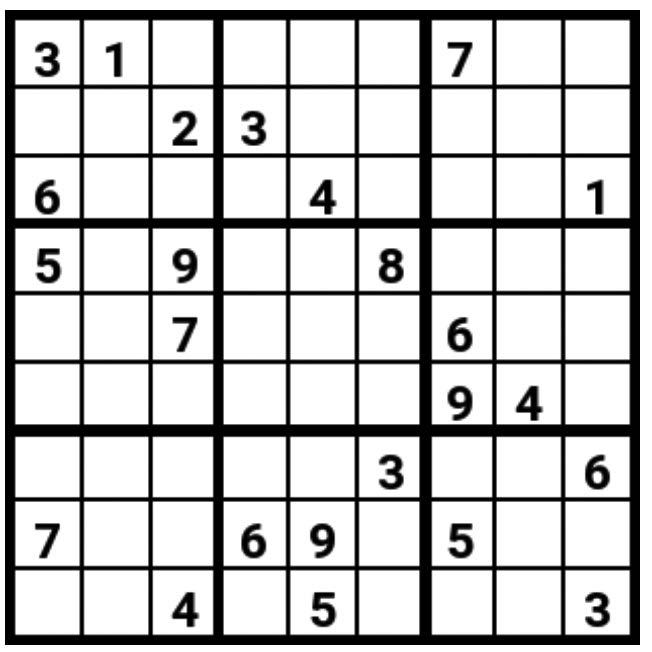
These are all famous celebrities and historical figures that have US state capitals in their names, The state capital in their name has been replaced with the state it is the capital of, name each person. (For example, Christopher Columbus would be Christopher Ohio)
Singer: Michael Mississippi
World Leader: Abraham Nebraska
Singer: John Colorado
Actor: Texas Butler
World Leader: Otto Von North Dakota
Olympian: South Dakota de Coubertin
Puzzles 22
Quick Crossword
? ?
by Some Hack
Sudoku Puzzles
Stuck? Finished? Bored?
Address: http://misinformation.com.au
National Sport Lifestyle Fascist Propaganda
what-pad.com
Love Story: A Taylor Swift Fanfic
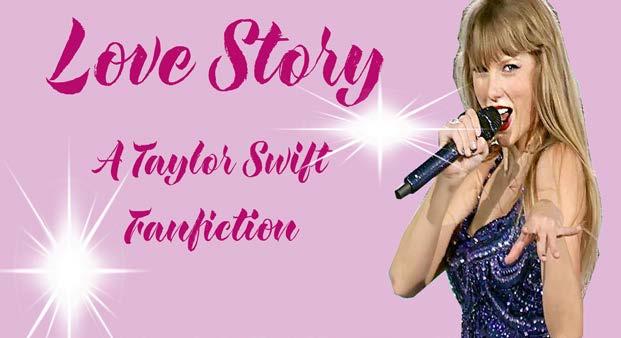 By kittykweef
By kittykweef
You’re at Manning Bar avoiding your drunk friends. All of them are cuddled up with their new pals, bopping lightly to the betweenact music. You pull your hair into a messy bun and grab a book from your bag — Virginia Woolf’s The Waves. You quickly become enthralled in the text. Literature is your one true love (you’ve never understood the appeal of live music) and despite jostling from the crowd, you feel completely at peace.
The flashing lights don’t bother you, and before long you hear the noise pick up as the next act walks onstage. You pointedly ignore the calls of the crowd and maintain your spot on the barricade.
A few minutes into the set, the artist calls you out. Pissed off, and upset that your special time has been interrupted in Manning Bar of all places, you look up and see your favourite artist — Taylor Swift.
“What, is my concert boring you?” she quips, all long legs and shining eyes. You drop The Waves as a room of one’s own becomes the furthest thing from your mind.
“Ah ah ah,” your face goes red and the flimsy elastic keeping up your messy bun tumbles out, curls cascading down your blushed cheeks.
“Don’t get shy [y/n], I’ve seen you around the Quad”
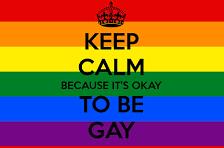
You remember the rumours swirling around about her and Karlie Kloss. With a boring b-list boyfriend begone, do you guys have Bad Blood, or is it A Blank Space?
TO BE CONTINUED…
‘He’s low-maintenance, but pretty prickly’: Woman opens up about dating a cactus


‘I’m keeping our streets safe’: Man gets glammed up at USU L’oreal vending machine

STICKY SITUATION: man fills all of the sanitiser dispensers with honey

The Quad grows legs and runs away
Man gets a nose ring: ‘I am strong like ox’

‘Does anyone even have an iron suffiency?’: Woman asks big questions

Bear breaks into USyd: Honey in hand sanitisers to blame

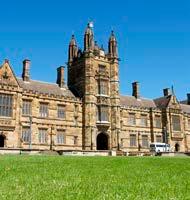
misinformation.com.au File Edit View Favourites Help
A a
DOING THE DIGGERS PROUD: Man lies comatose after eating six packets of Anzac bikkies
NO TO WAR AND FOSSIL FUELS
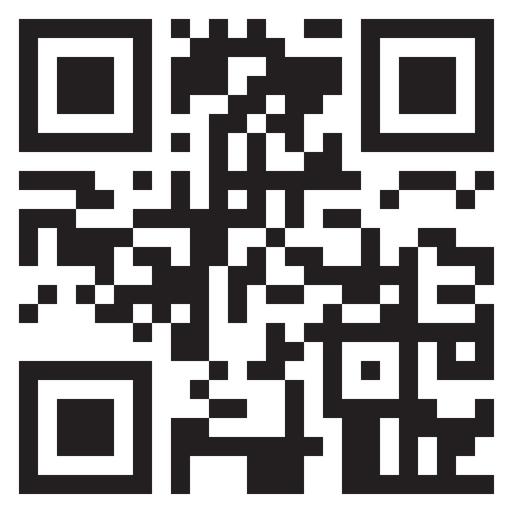

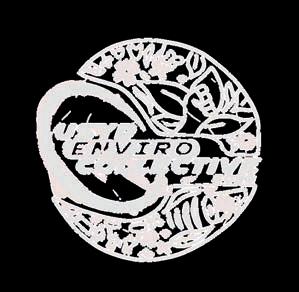




THE QUADRANGLE, USYD Thales & Santos OFF CAMPUS
12PM THURSDAY APRIL 27
 Honi Soit Analysis, page 6
Will Thorpe Perspective, page 13
Lachlan Griffiths Culture, page 9
Nicola Brayan Feature, page 12
Sandra Kallarakkal Perspective, page 16
Daniel Holland Culture, page 10
Honi Soit Analysis, page 6
Will Thorpe Perspective, page 13
Lachlan Griffiths Culture, page 9
Nicola Brayan Feature, page 12
Sandra Kallarakkal Perspective, page 16
Daniel Holland Culture, page 10
































 Daniel Holland dreams of a better world.
Daniel Holland dreams of a better world.































 By kittykweef
By kittykweef
















